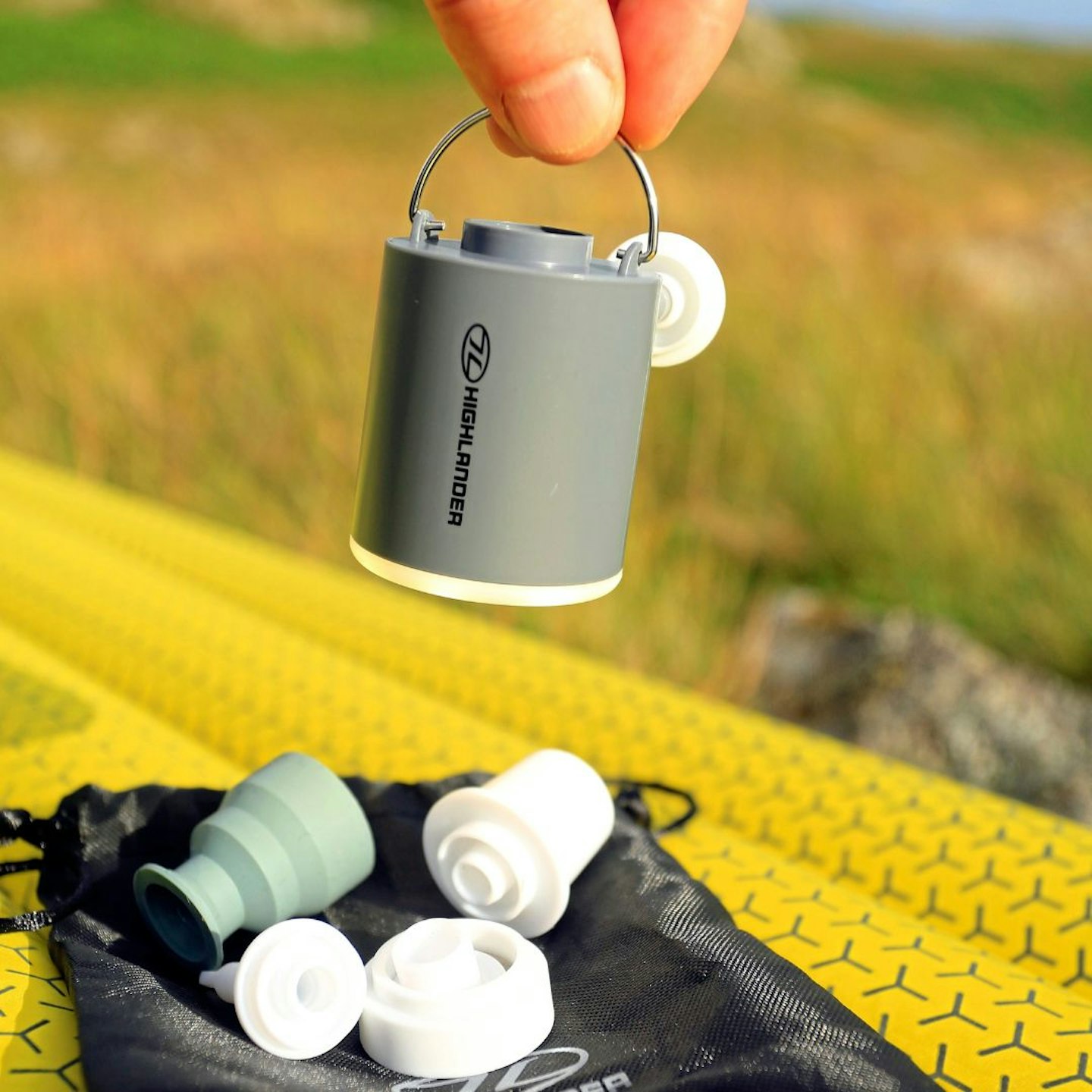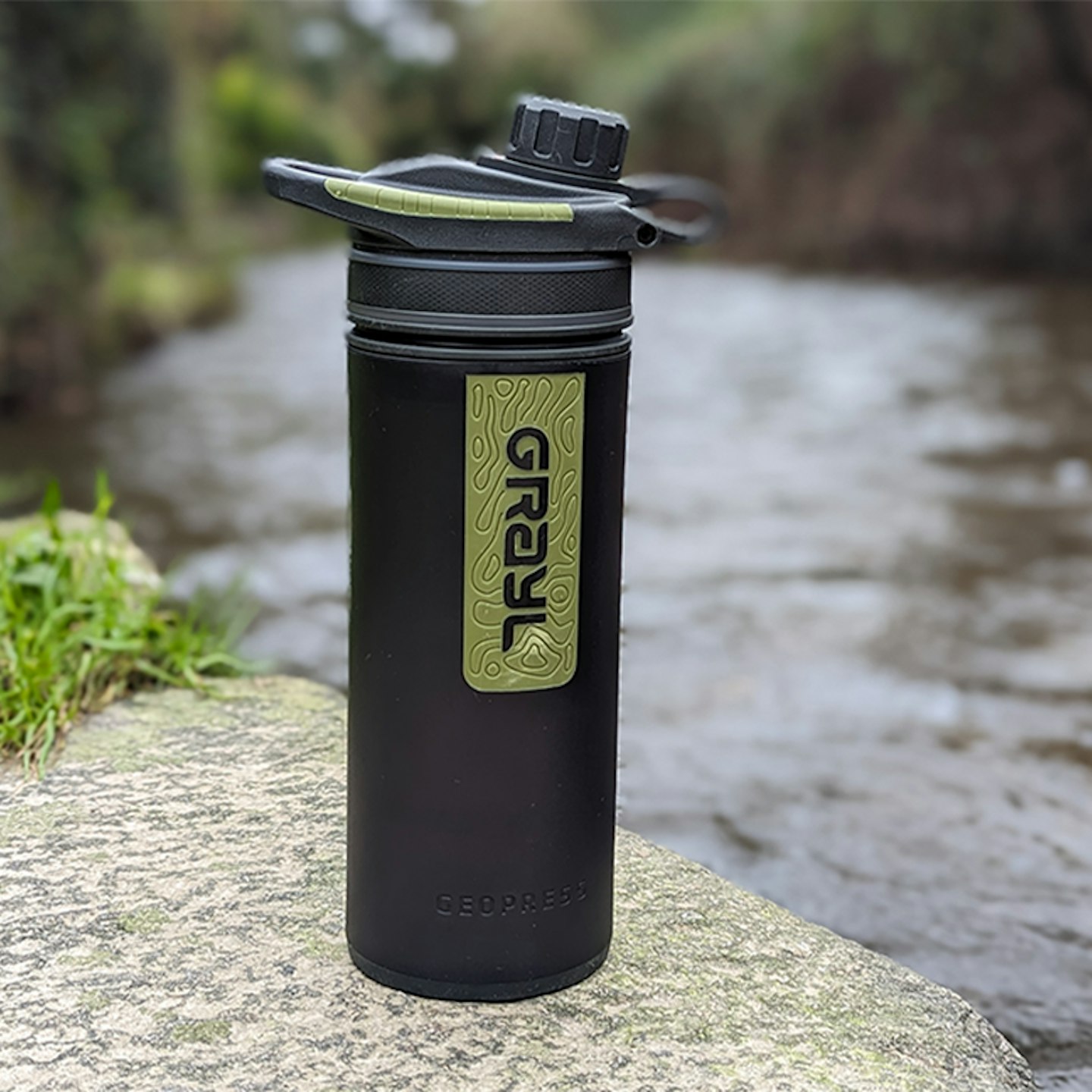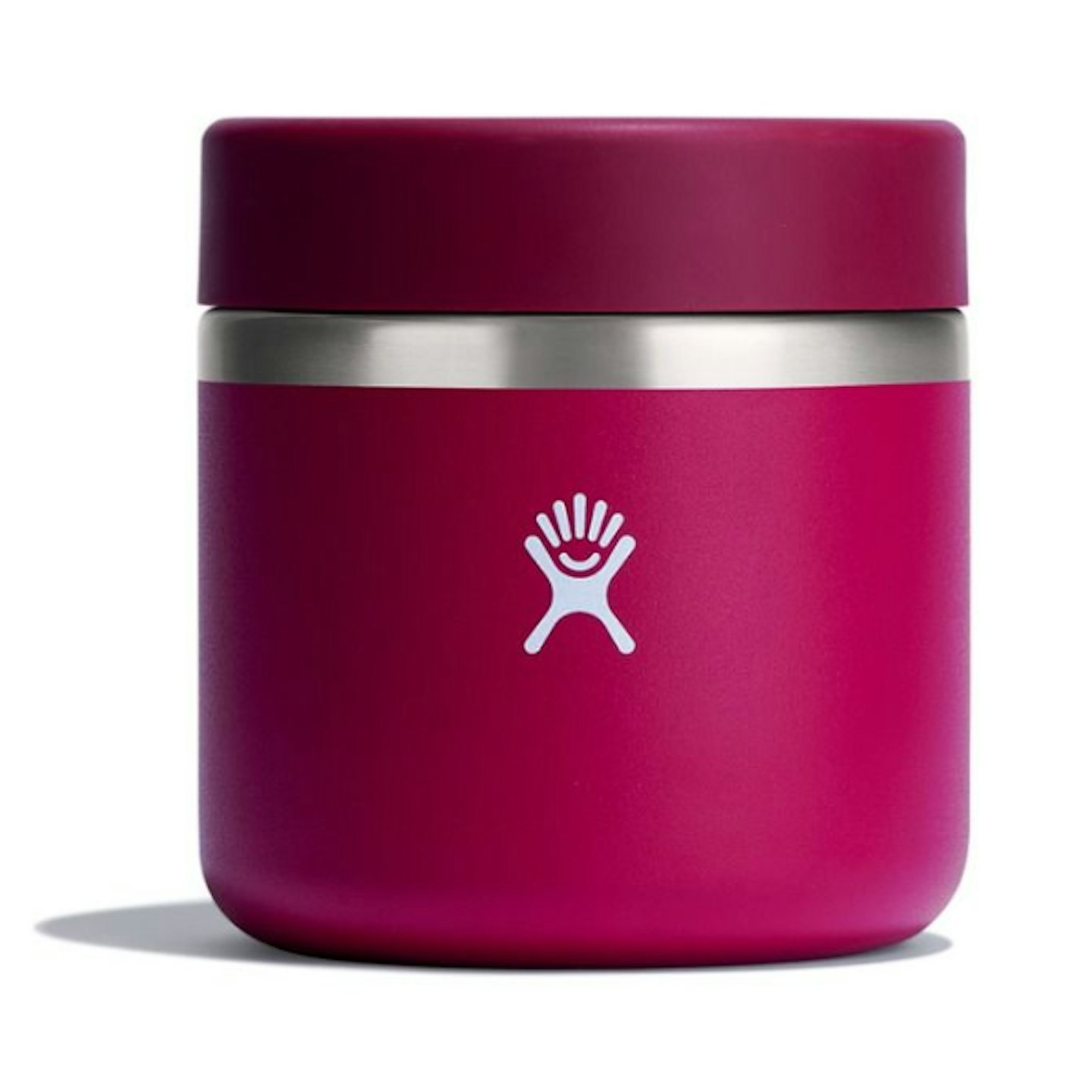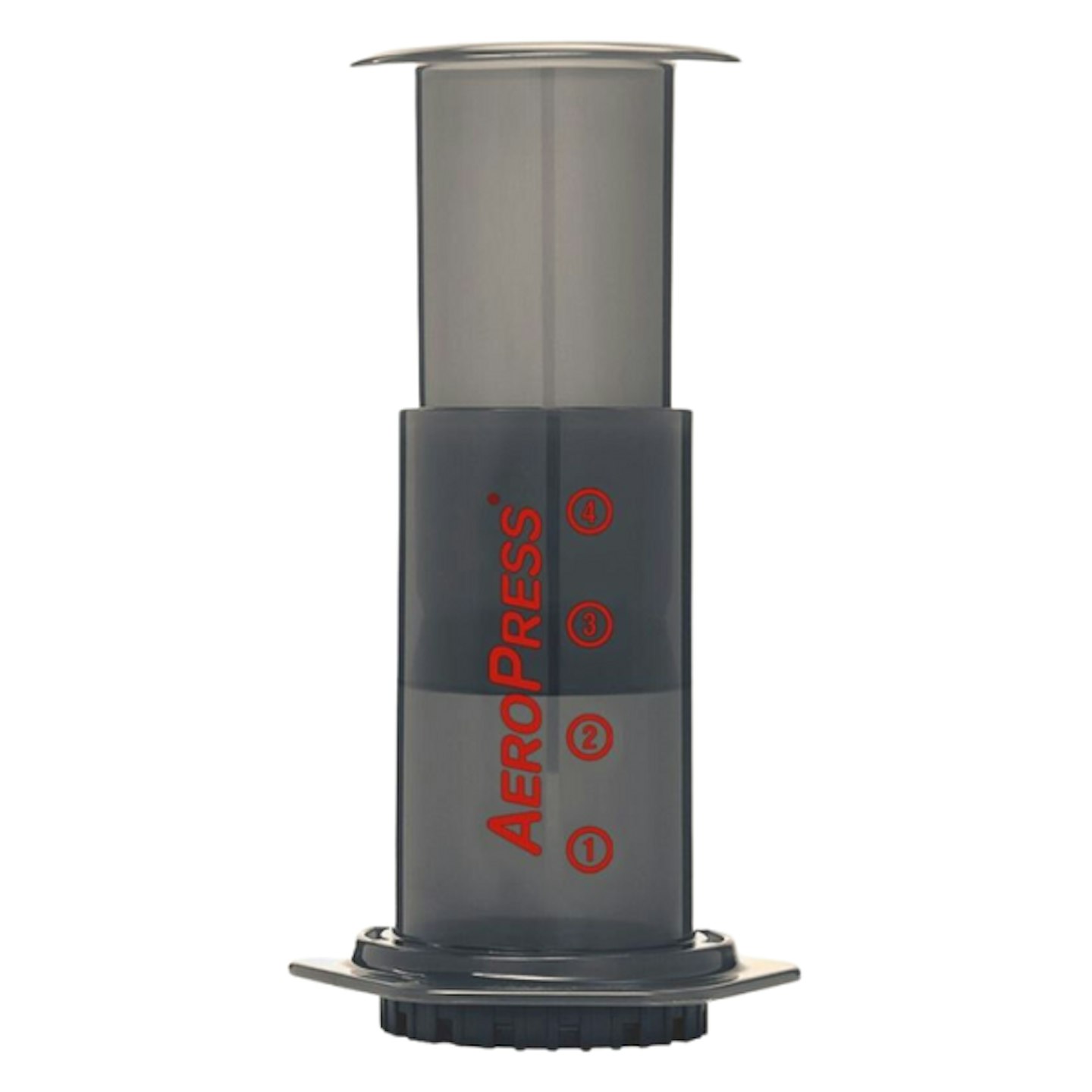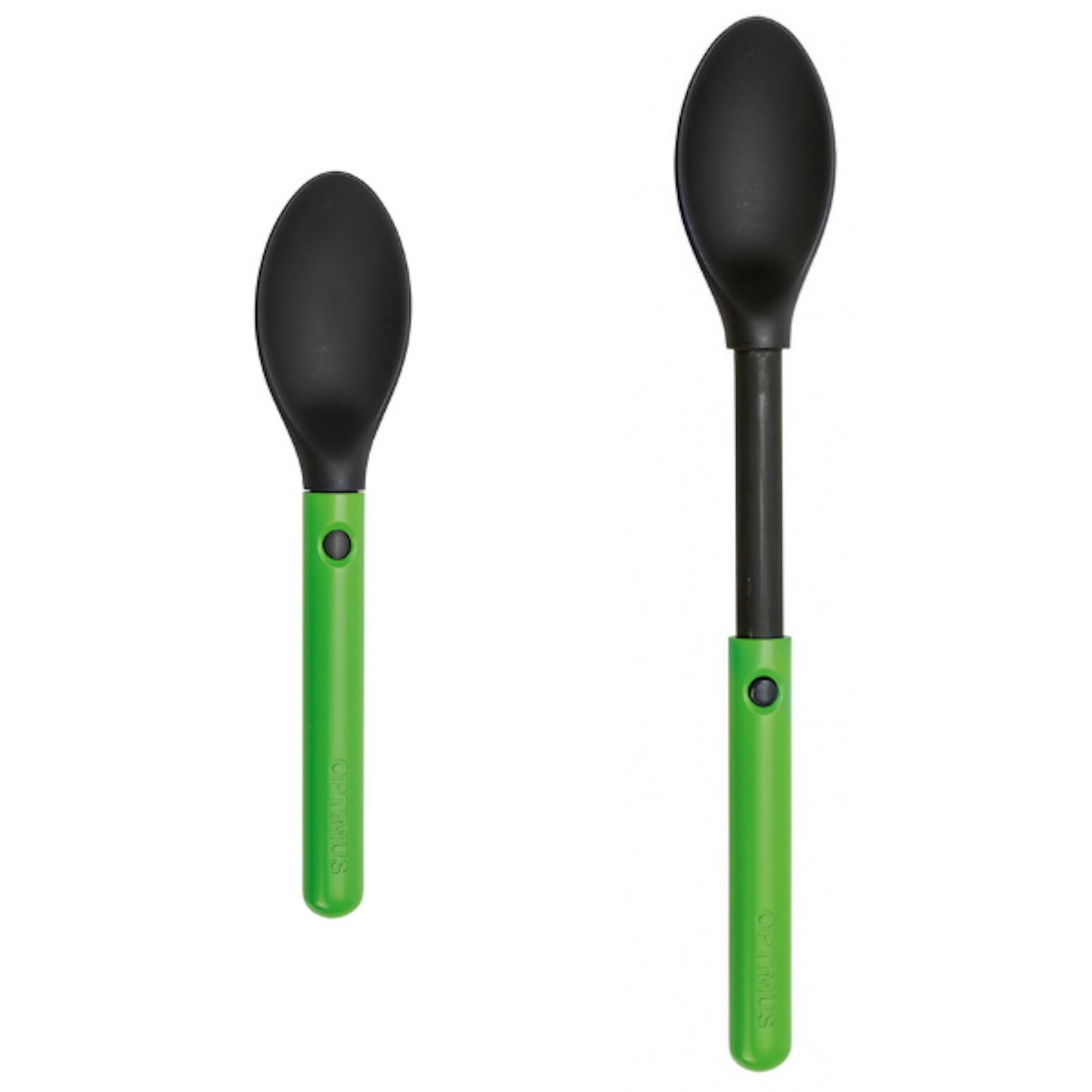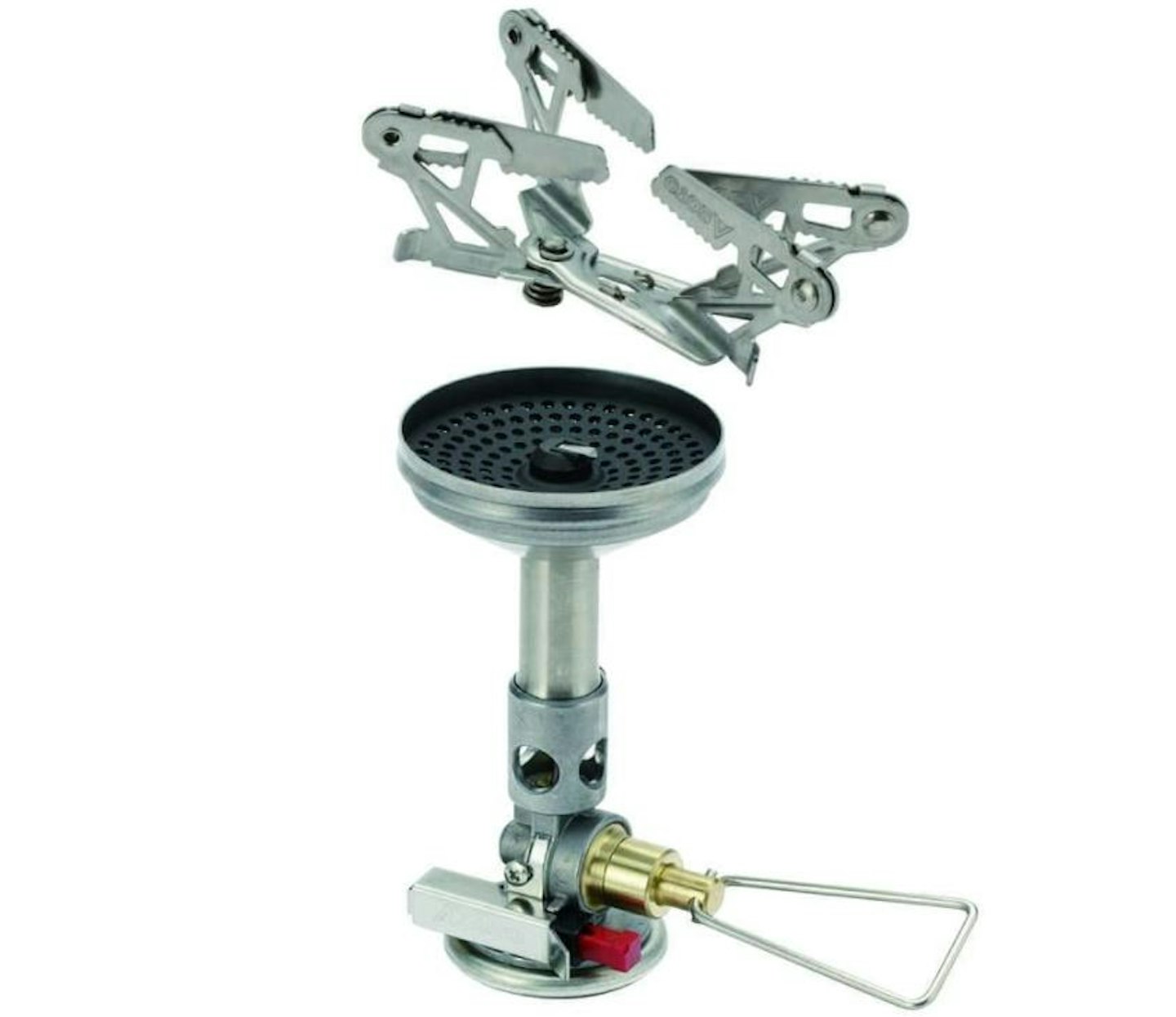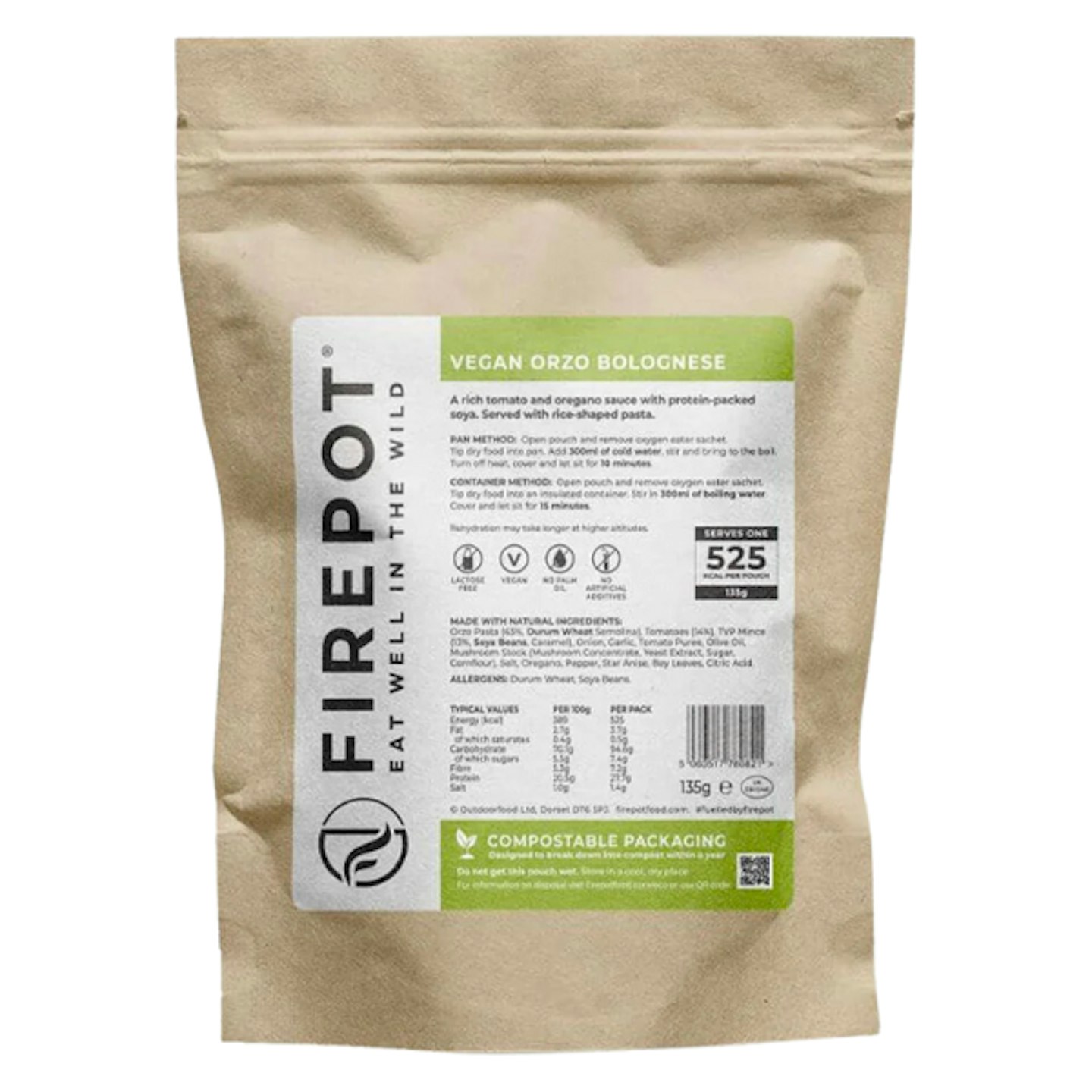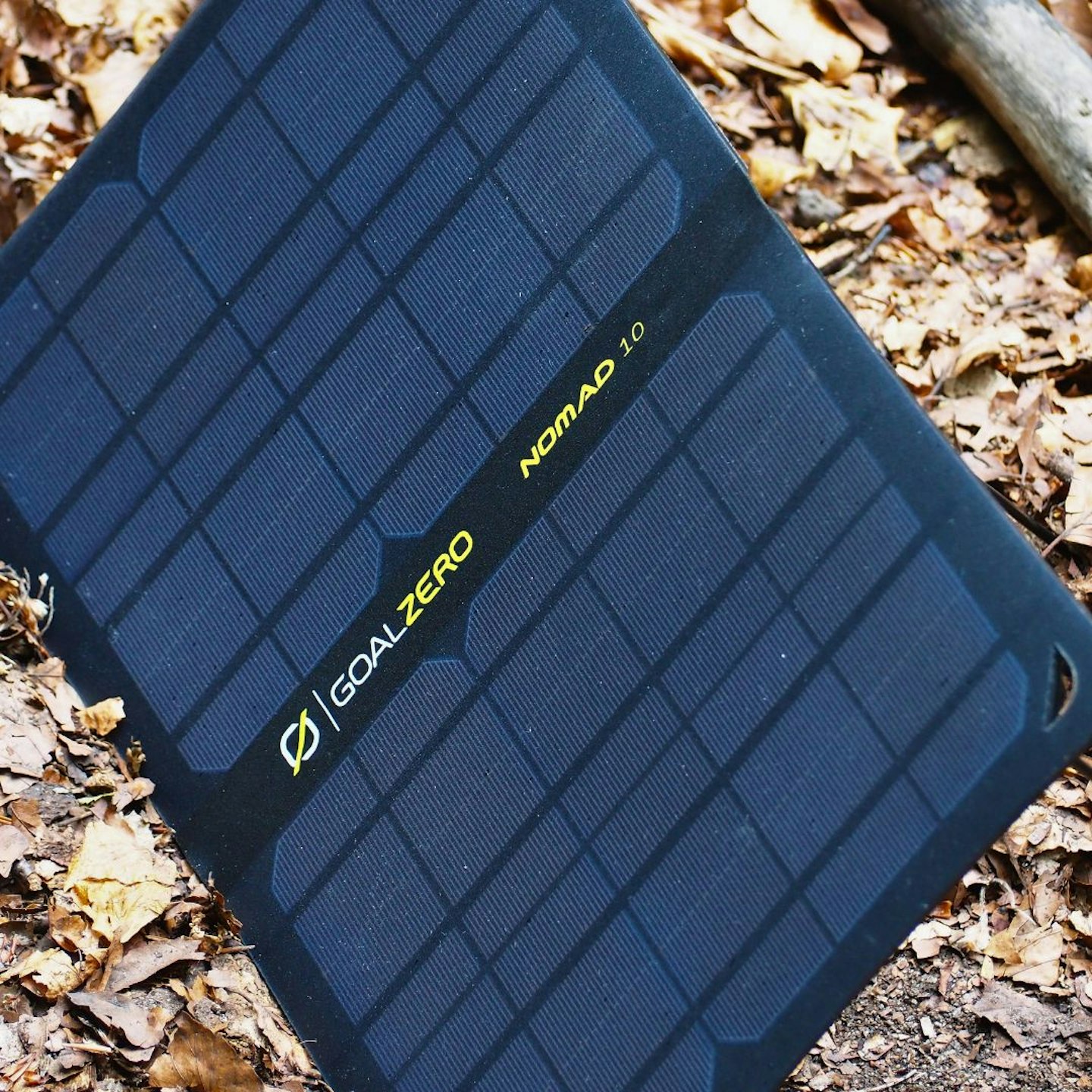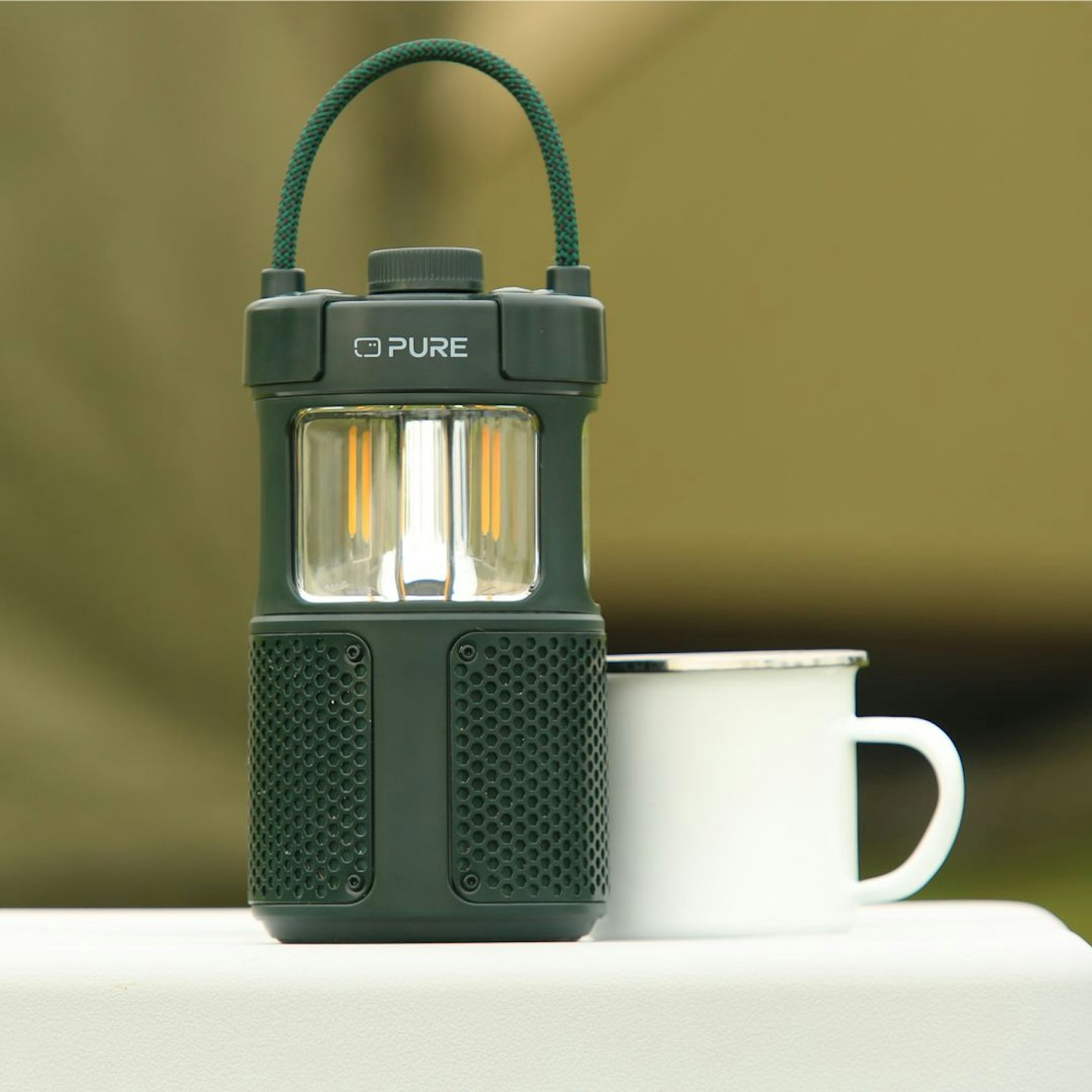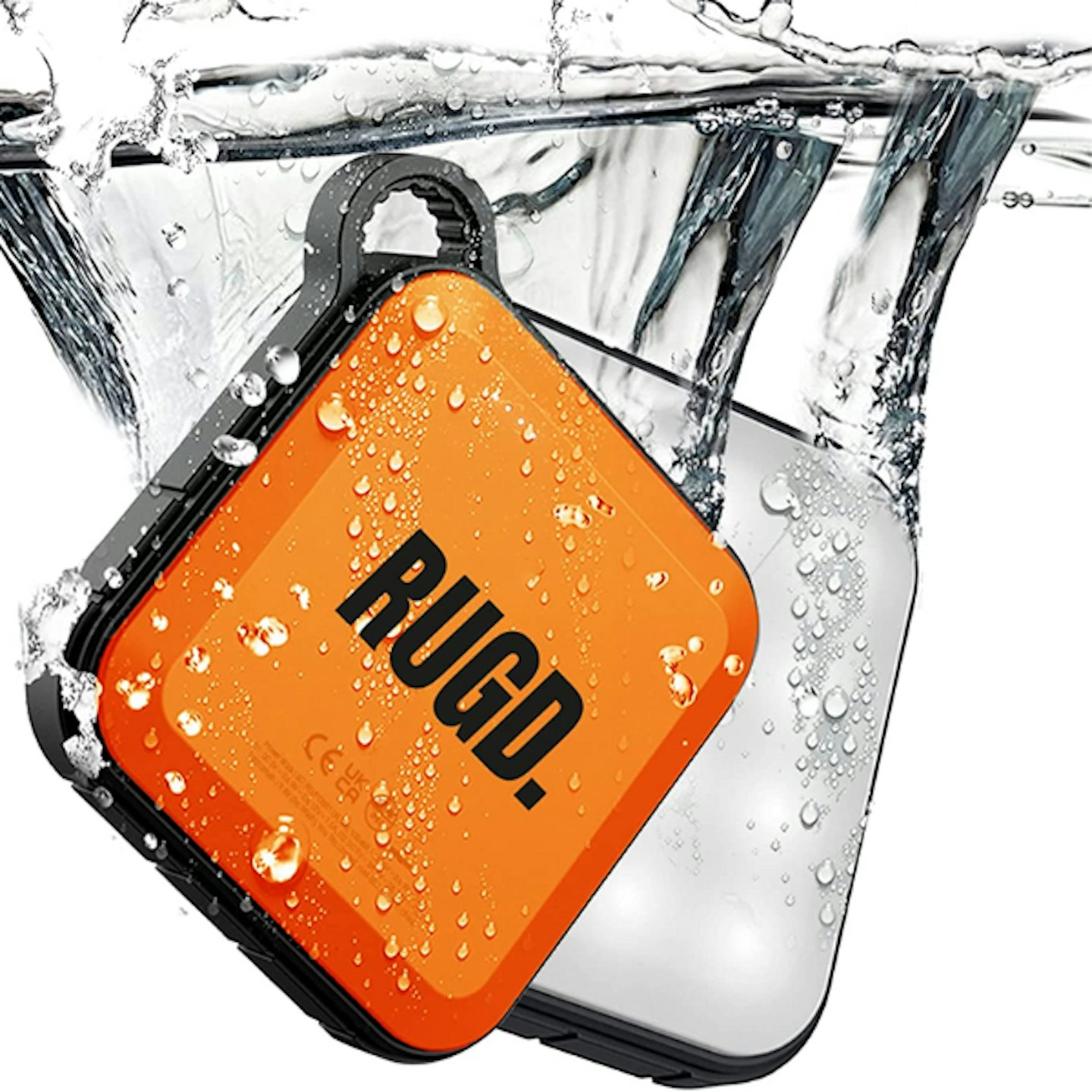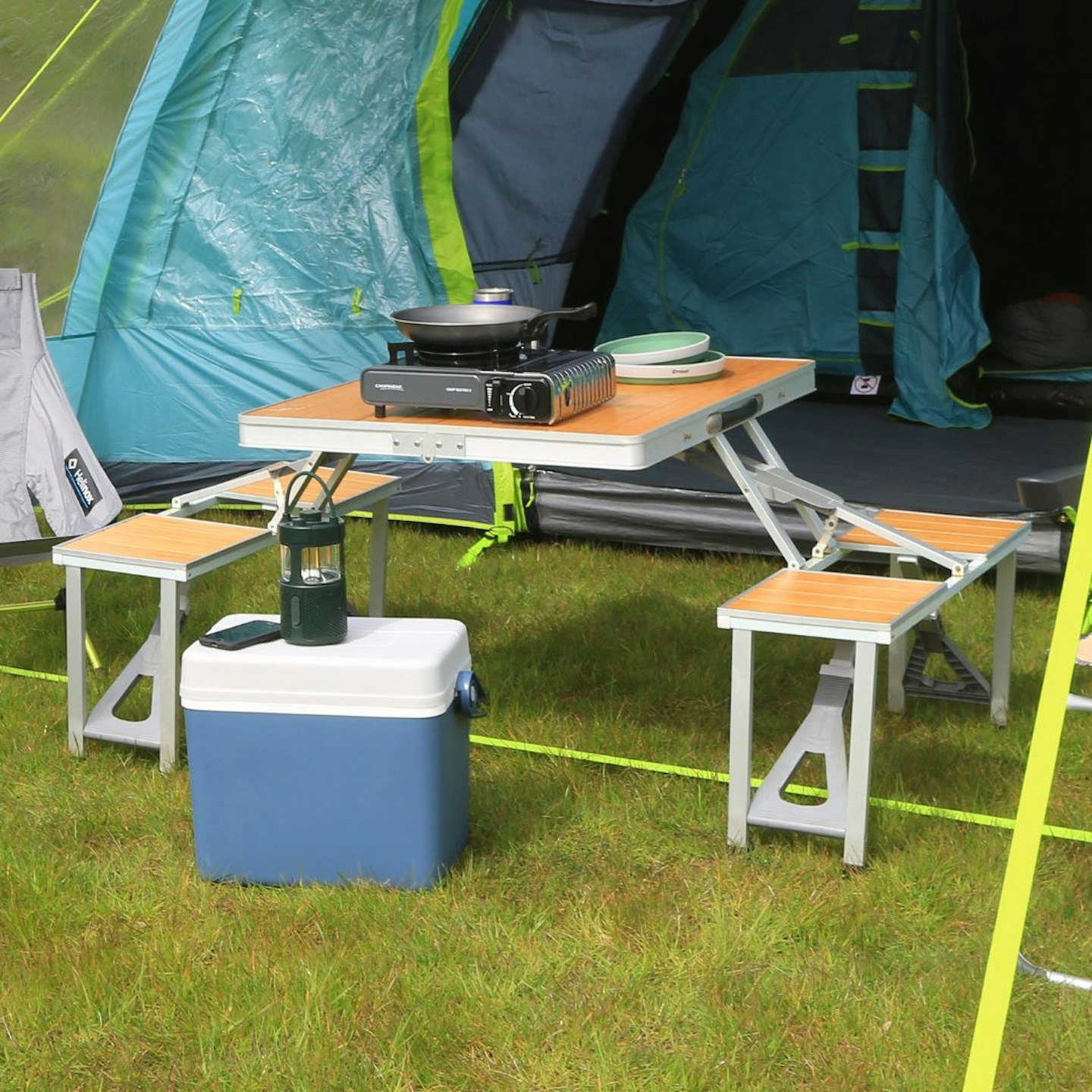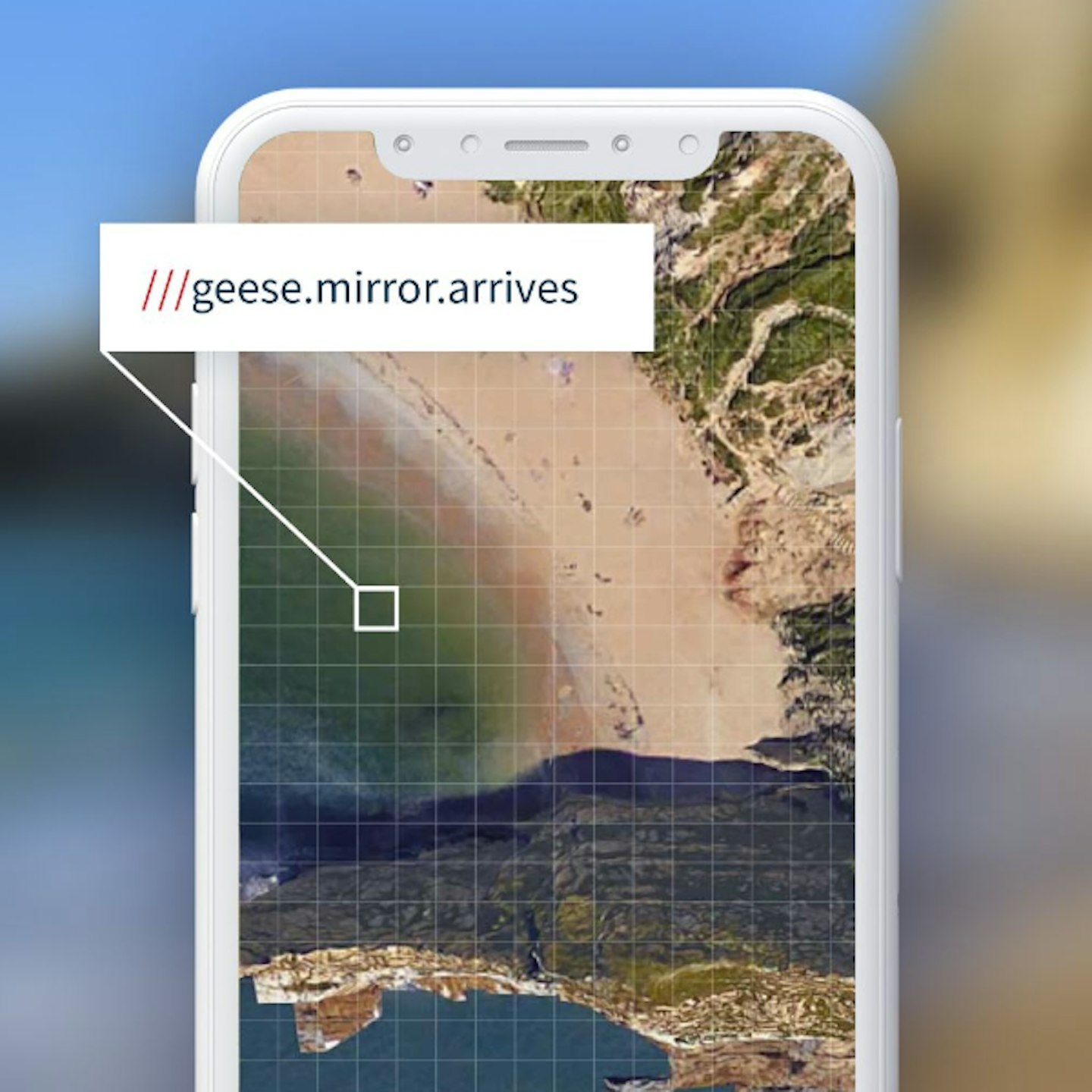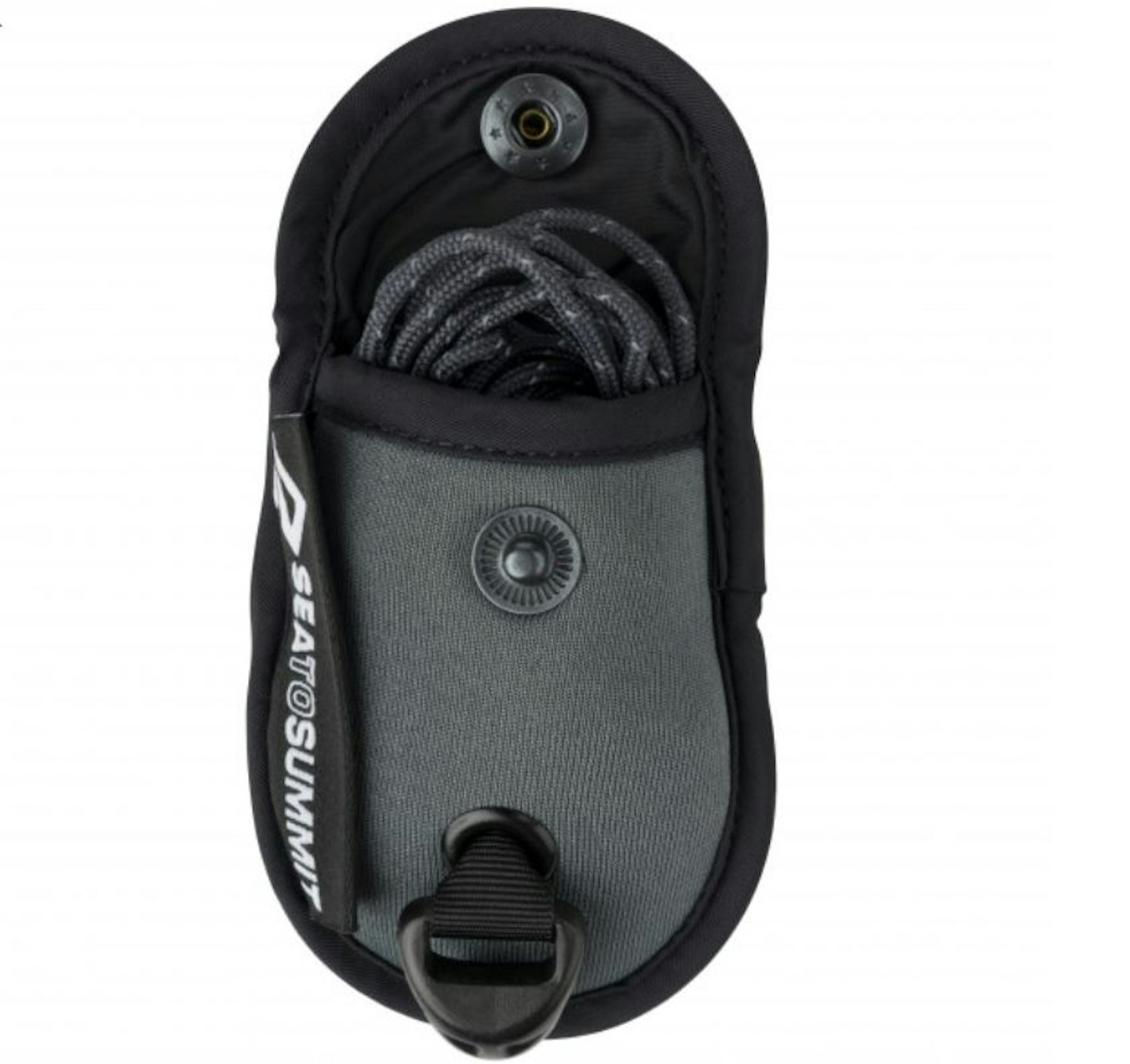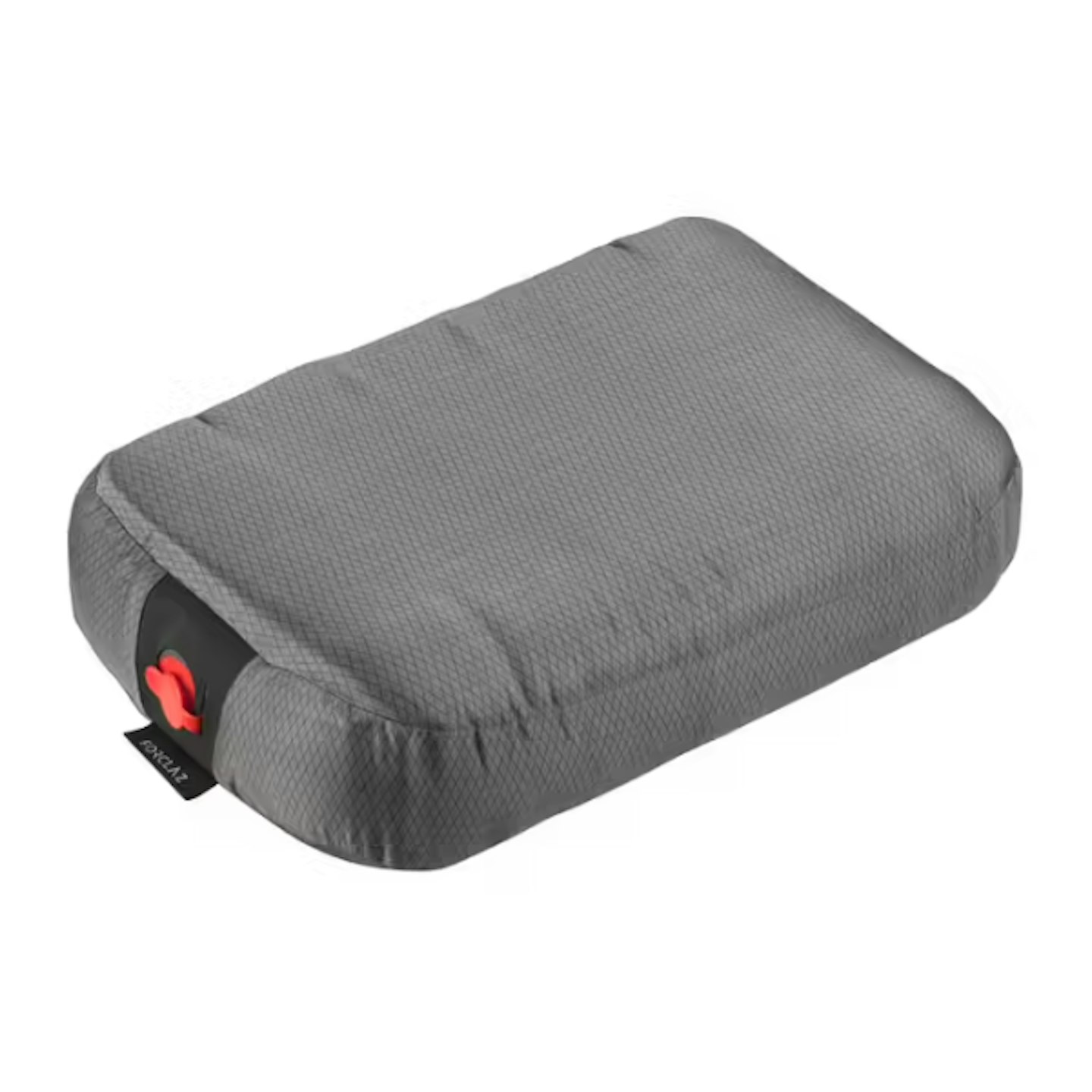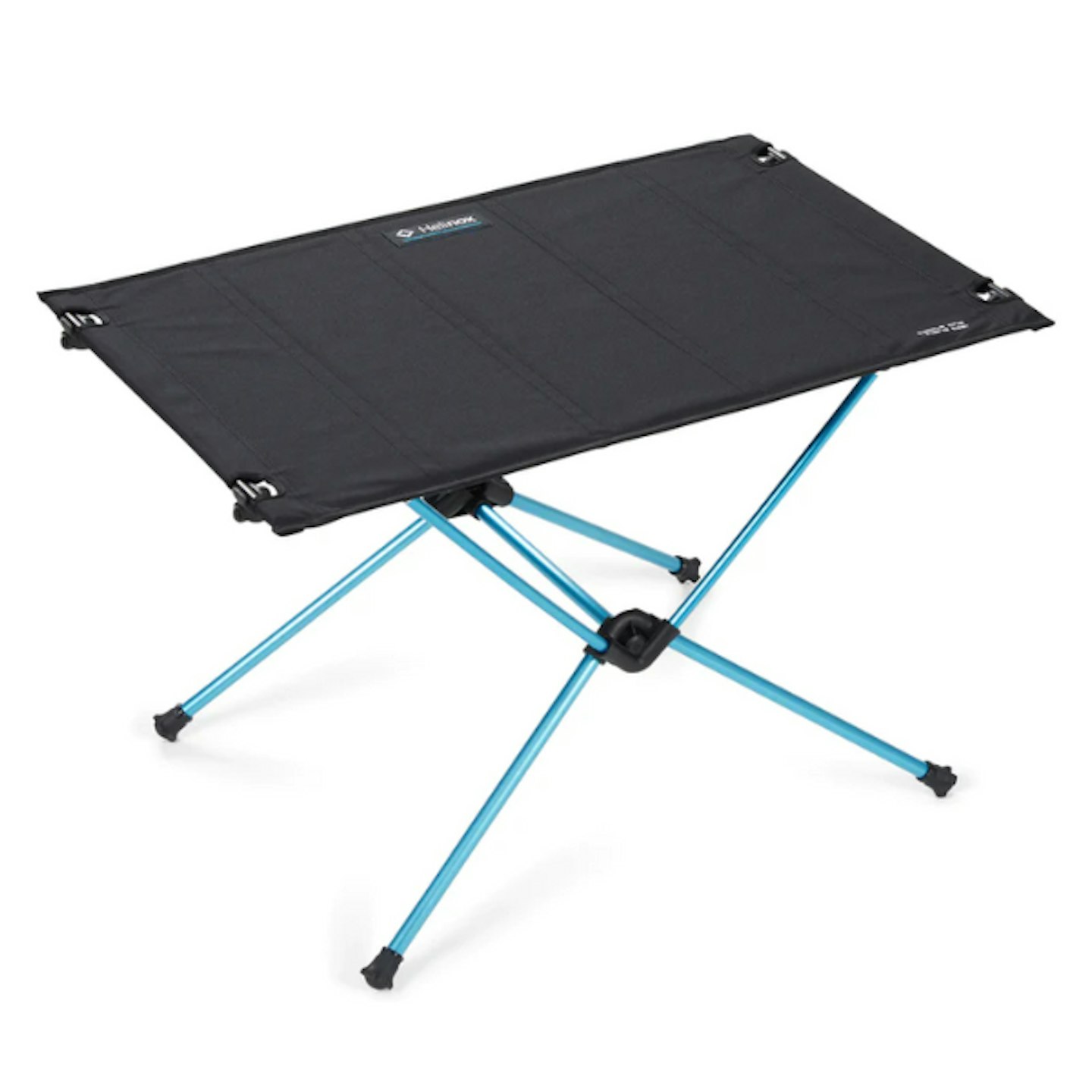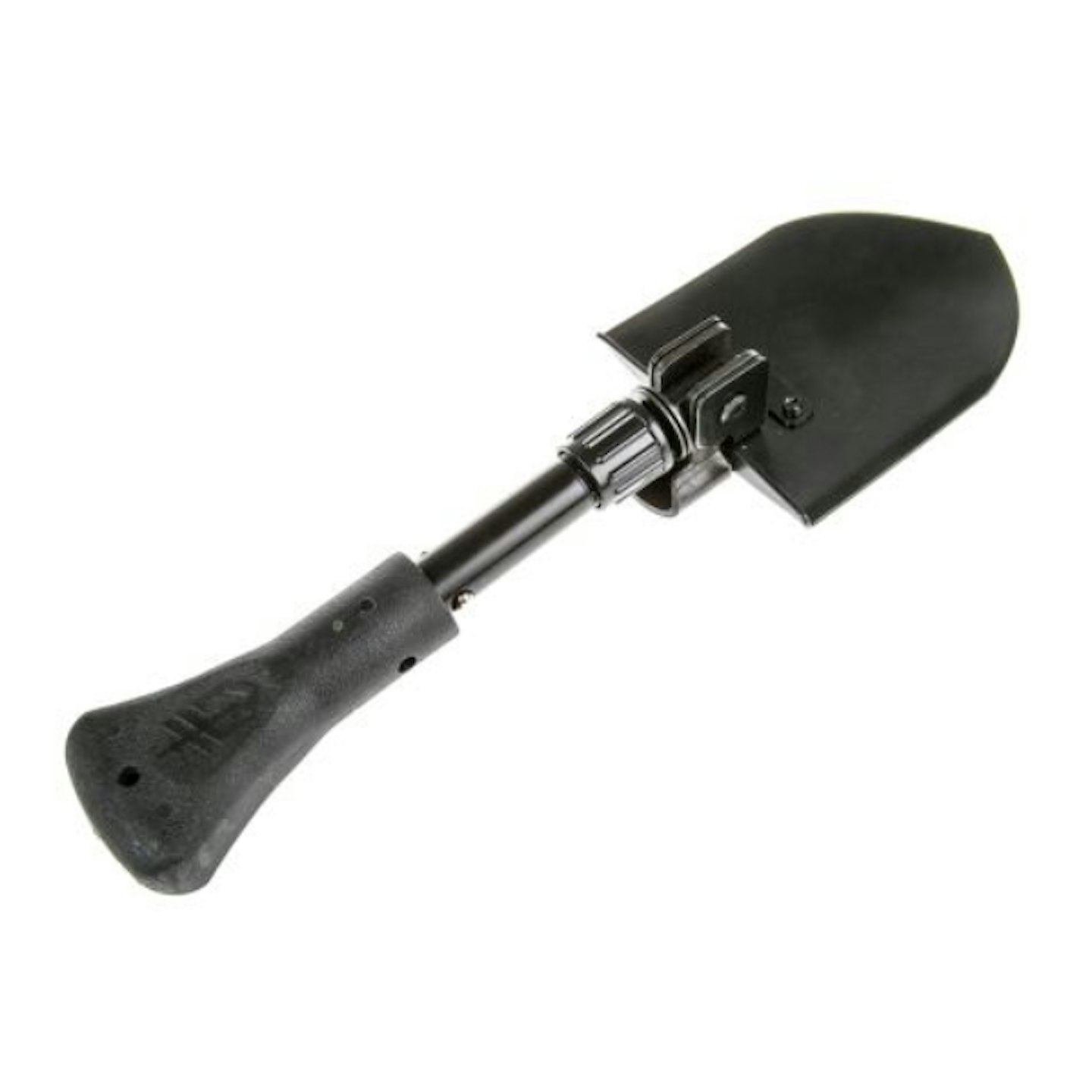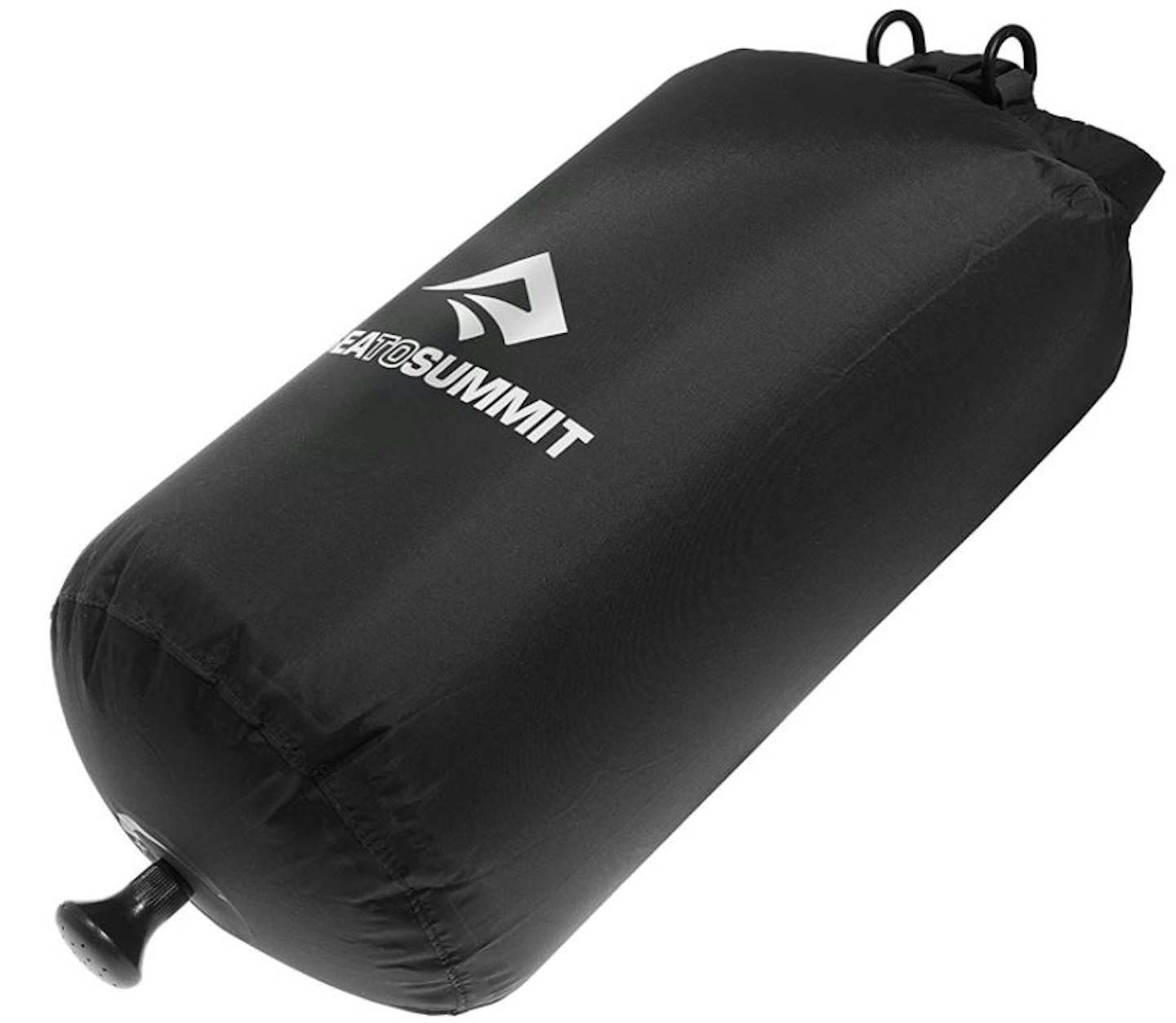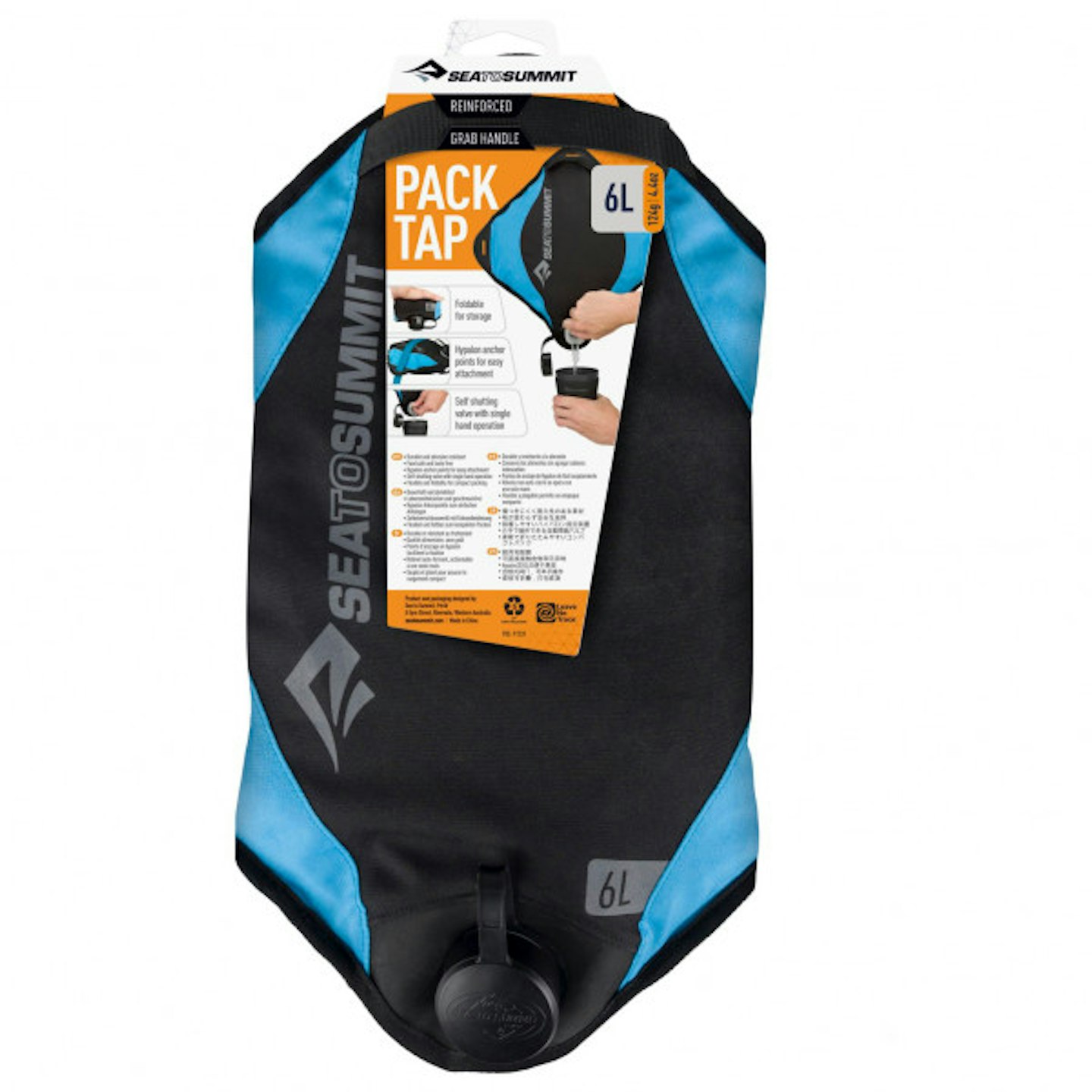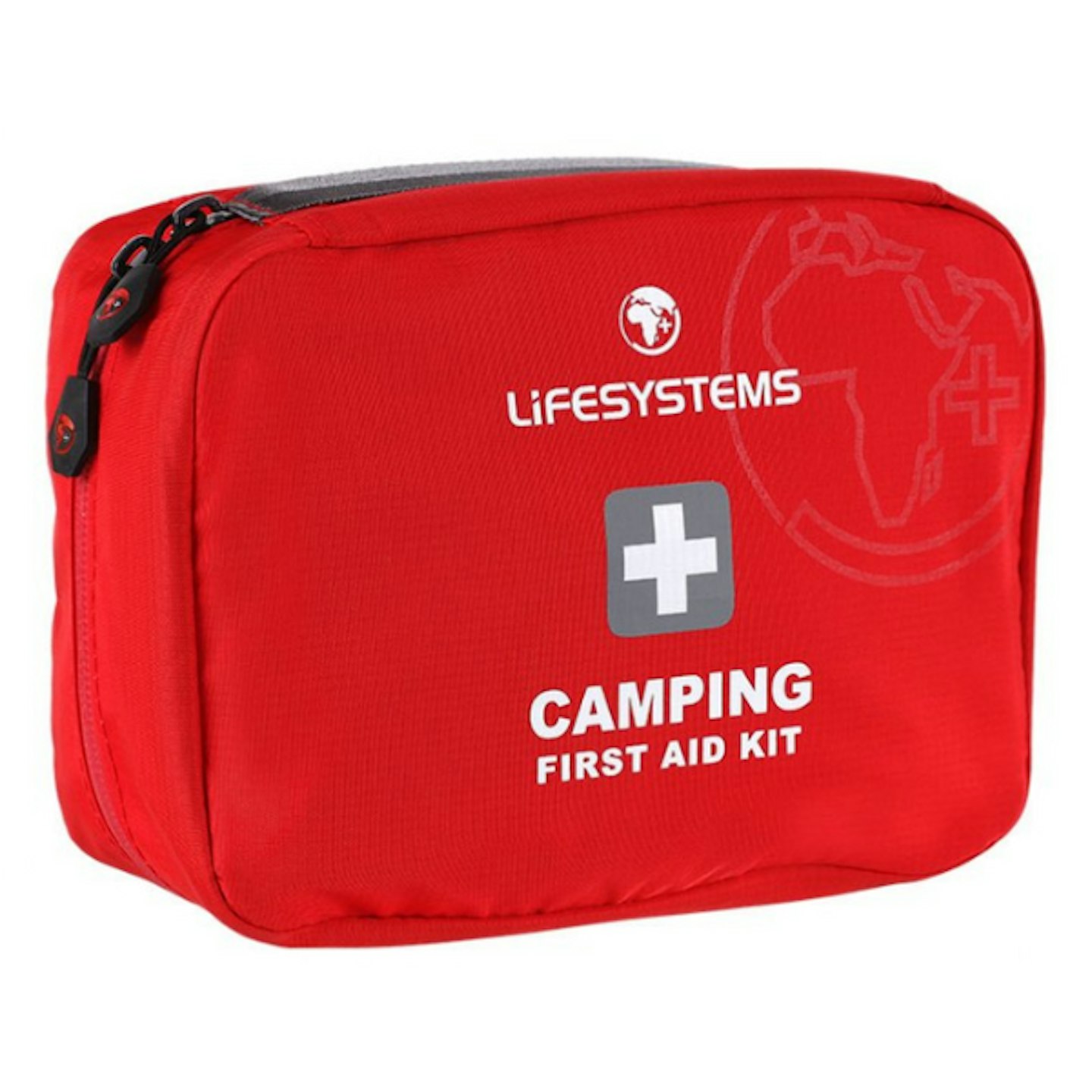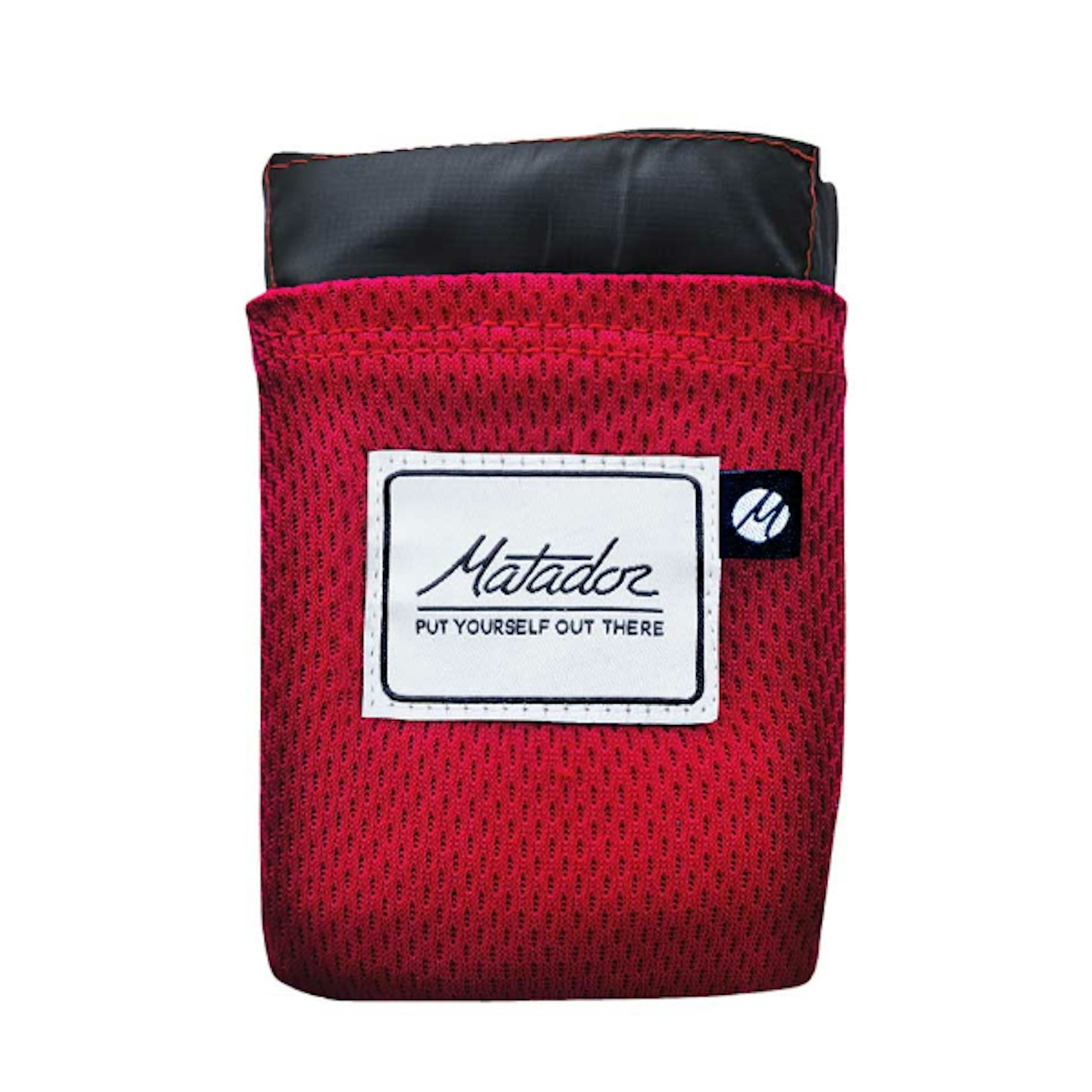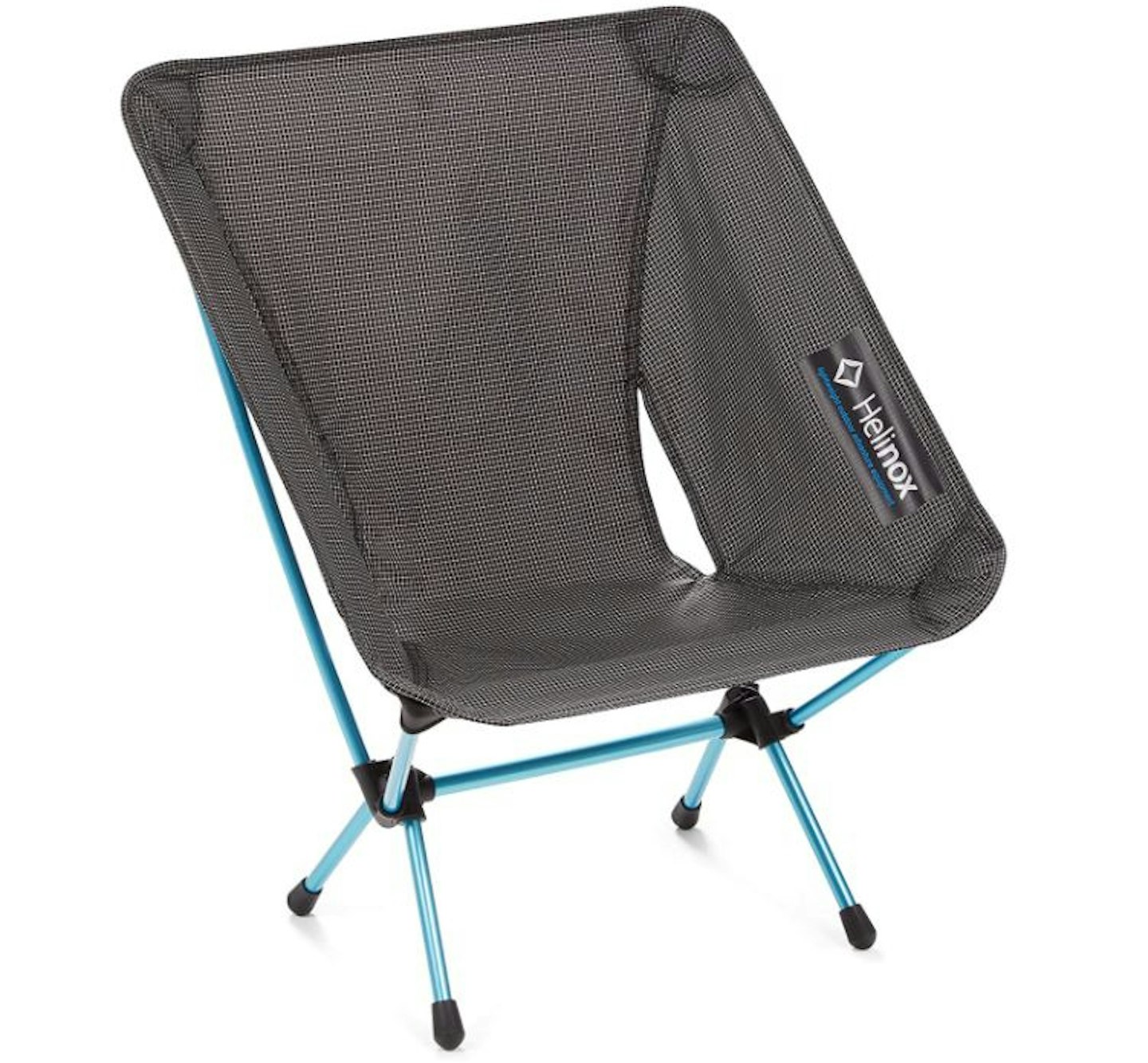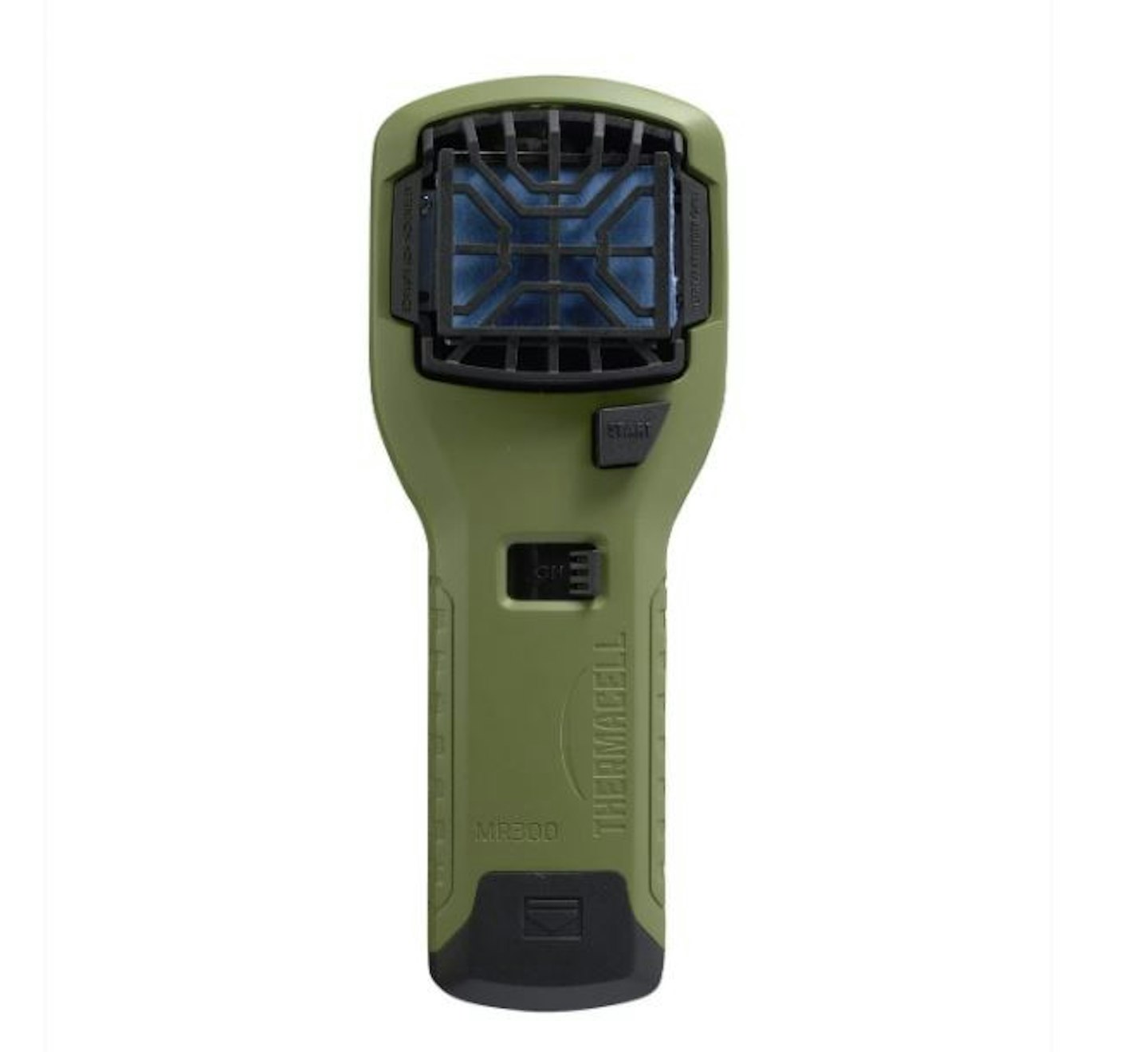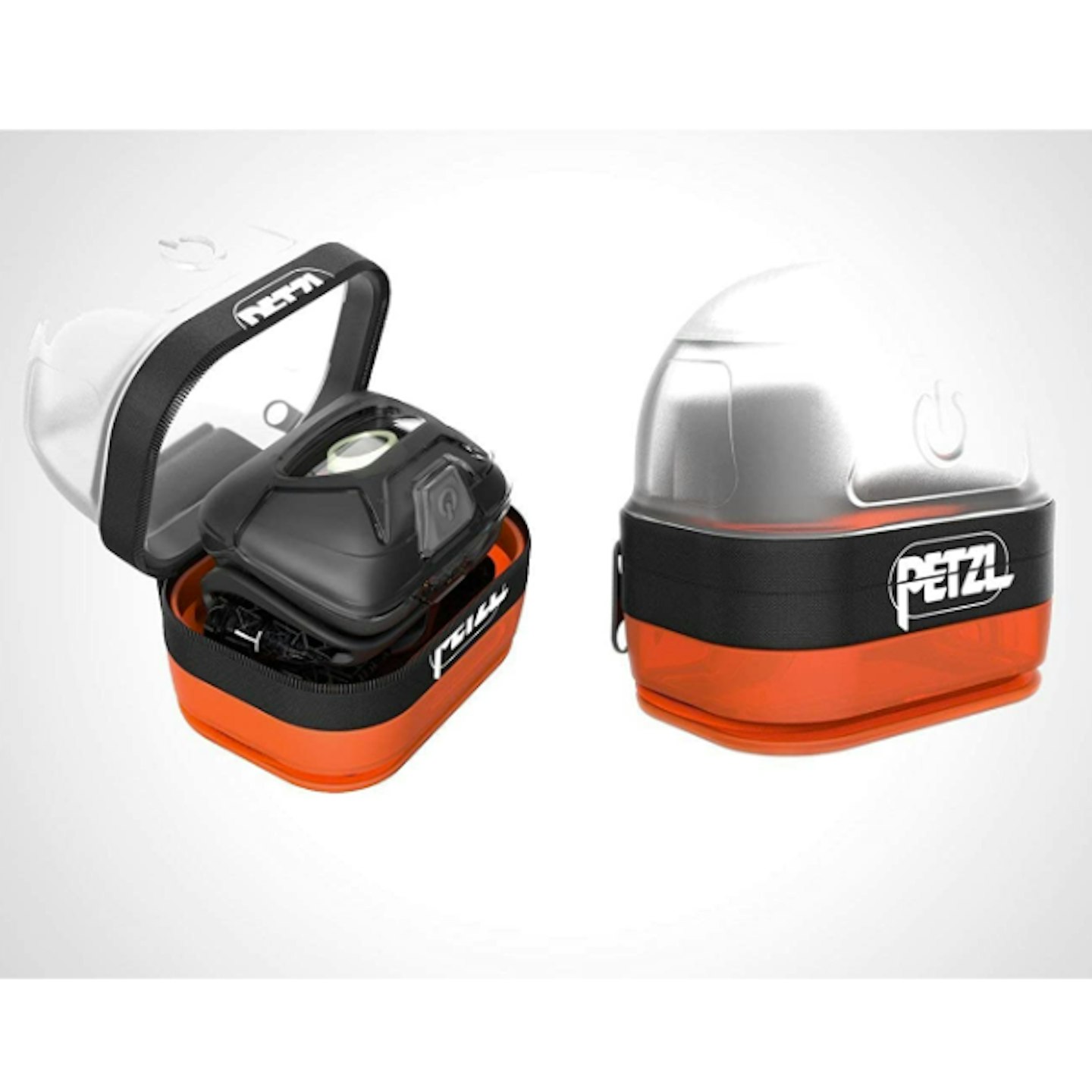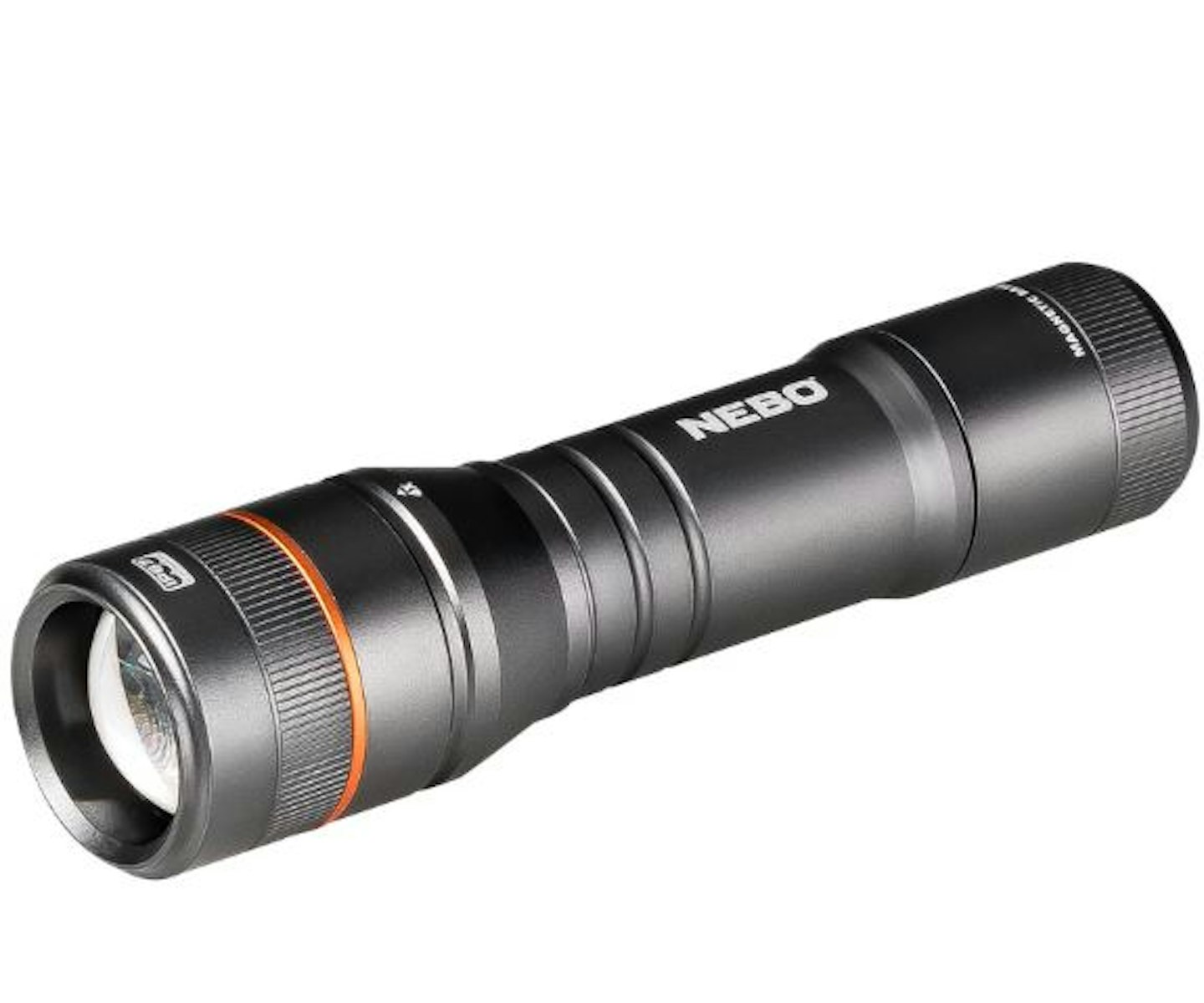Over the many decades we've been camping and backpacking, we've found that adding one or two small modern camping gadgets into your hiking pack can enhance your overnight experience rather than taint it.
A large part of the appeal of camping is minimalism. But a couple of compact comforts is a far cry from glamping, so don't feel guilty. And there are so many great camping accessories out there now, that choosing which ones to add to your kit list is part of the fun of planning a trip.
What are the best camping gadgets of 2025?
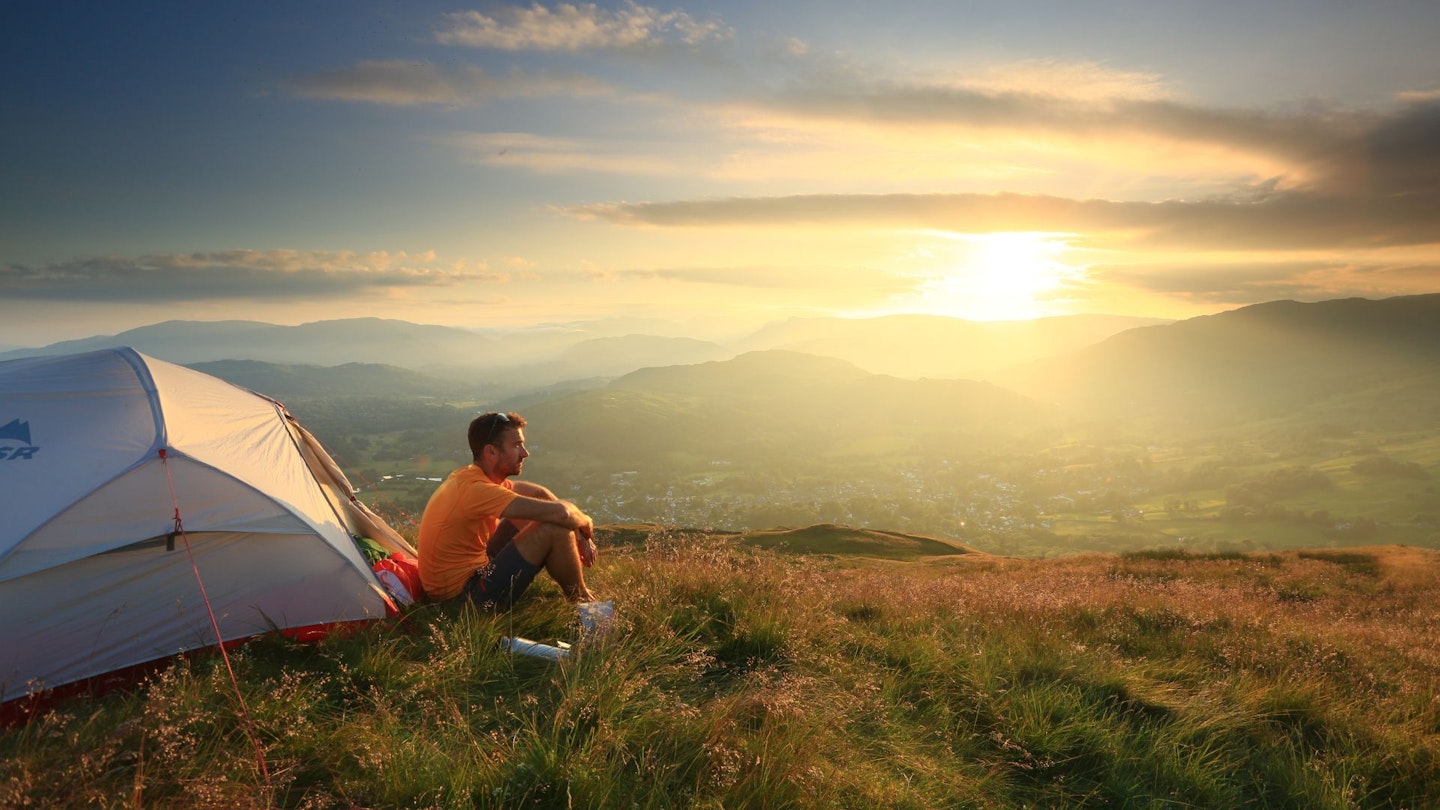
What are the best camping gadgets of 2025?
Some of our recommendations, like a water filter, are, to us, pretty essential for backcountry adventures. Another example is a more traditional camping stove to use when you set up camp for a weekend at a campsite. They offer high functionality and simplicity that makes them an absolute pleasure to prepare food with.
On the other hand, we've also included what you would definitely consider luxuries, such as the AeroPress Original Coffee Maker. Items like that aren't essential by any stretch of the imagination, but they always succeed in making us smile at the end of a long day.
How we tested the best camping gadets
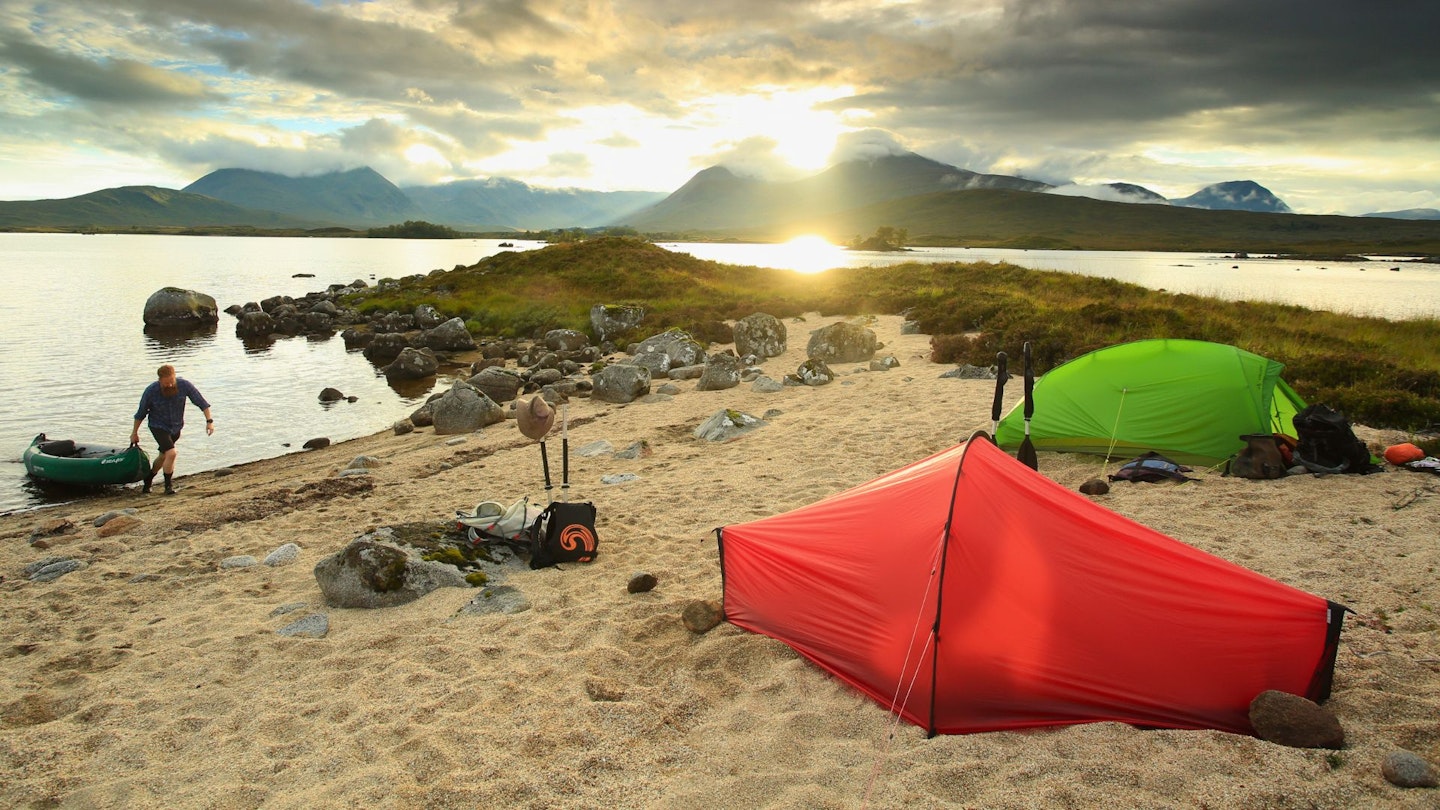
Having used and tested countless camping and hiking gadgets over the years, we've got a keen sense of what's good and what isn't. However, unlike most outdoor gear we review, we don't conduct specific camping gadget group tests. But we do still get sent all of the latest accessories and gismos, which we take with us on our many, many outdoor missions.
This means that all the camping gadgets recommended here have been thoroughly put to use in real world conditions by one of our highly experienced team. Of the hundred of camping gadgets we test, the few here are our absolute favourites. To find out more about how we test outdoor kit, click here.
Best camping gadgets in detail:
Do you need a Wee Banshee in your life? Probably not, but as we discovered, once you’ve used this lightweight micro air pump to inflate your air bed, sleeping mat, or camping pillow, you’ll never want to use your lungs again.
This USB rechargeable and highly portable pump comes with various adapters to pump up a range of inflatables, and can also be used for deflation too. It also has a built-in light, and who doesn’t love a multi-purpose camping device? We certainly think it’s great, even if it does scream like a wee banshee when inflating!
Check out our quick YouTube video on the Wee Banshee in use
Pros
- Super compact
- Decent value
- Saves your breath
Cons
- A bit noisy
It only takes a dead sheep or the thoughtless toileting of a fellow wild camper upstream to make the purity of wild water a gamble. Grayl's GeoPress purifier water bottle removes bacteria, viruses, protozoa, particulates (like microplastics), chemicals (like PFAS and chlorine), and heavy metals (lead, chromium and arsenic), making water safer and removing unpleasant tastes.
We've used it on hiking trips in the UK and in Vietnam and it performed brilliantly.
Read our full Grayl Geopress review
Pros
- Extremely effective water filtration
- Simple operation
Cons
- Heavier than a regular drink bottle
This one is less of a camping gadget, more of a camping accessory. It always feels unnecessary when packing up a large bottle of shampoo or shower gel for a weekend of camping.
Enter these flatpack toiletry bottles. They take 90ml of liquid (making them ideal for hand luggage on planes, too) each, which is plenty for a few days on a campsite, yet take up hardly any room.
They're easy to fill up via the screw-top opening, have a hanging loop for practicality when showering and are made of tough, welded Cordura for longevity. Available as a single bottle or as a three-pack, as featured here.
Pros
- Lightweight and compact
- Hanging loop
- Hand-luggage compliant
Cons
- Not cheap
We've loved using Vango's Superstar 500 Recharge USB as a camping lantern. Although it's a bit big for hikers to stuff in their backpacks (it's about 18cm tall and 13cm across), there's little else to fault.
There are three brightness levels (50, 200, and 500 lumens) and even on the highest setting we still got several hours of use (Vango claims 10 hours on High).
We liked how it doubled as a power bank (there are USB-C and USB-A ports on its underside) and how the Superstar 500 Recharge USB's rotating hook makes it a hanging lantern too (although at 400g it needs to hang from something reasonably sturdy.
Pros
- Long run time
- Three brightness settings
- Is also a power bank
- Good value
Cons
- A bit big for hikers
Avoiding single-use plastic containers – such as expedition meal pouches or supermarket pasta pots – is vital for the planet. Hydro Flask's excellent food jars enable you to do this, providing a double-wall, vacuum-insulated container for your home-cooked meals.
Whether your meal of choice is porridge, noodles, soup, rice or casserole, these colourful, leakproof, wide-mouthed jars will keep your food hot for hours. Available in multiple volumes.
Pros
- Three volumes available
- For hot or cold food
- Reliable leak proofing
Cons
- Possibly a bit heavy for ultralight hiking
Just because you're sleeping in a tent doesn't mean you have to tolerate bad coffee. The AeroPress sees to that.
Lightweight, portable, and ridiculously simple to use, the AeroPress uses gentle air pressure from the integral plunger to push hot water through the ground coffee, resulting in a smooth, rich flavour. It comes with full instructions for use; just add your choice of coffee and water.
Pros
- No battery/electricity need
- Portable
- So much better than instant coffee
Cons
- A tad bulky
To save on carrying kitchenware (and washing up), it's the norm to eat camping meals directly from the pack. But your average spork is only just long enough, resulting in missed morsels and food-filled fingernails.
This Optimus extending spoon solves both problems, easily reaching the corners of the pack while keeping your fingers well away from the contents.
Pros
- Space-saving
- BPA-free
Cons
- Nothing - it's brilliant
The Windmaster currently stands as our champion camping stove. It's a reliable, affordable canister-top stove with good stability and excellent wind protection, with the beneficial bonus of a fast boil time (4 minutes for one litre).
The Windmaster weighs in at just under 100g. There are lighter ones around, but in return for the slight extra heft, you get four support arms, rather than the usual three, and a wider 4.5cm burner.
This ensures better stability when cooking and a broader heat base for easier cooking. The burner head is also concave to help with wind protection and works wonders.
Pros
- Withstands strong wind
- Four support arms
- Wide 4.5cm burner
Cons
- Slightly heavier than some others
Firepot's expedition meals are as tasty as camping cuisine gets, and now they are more eco-friendly than ever. The Dorset-based brand has developed compostable eco-packing as an alternative to its yellow plastic pouches.
Made from bio-based sources, including sugar cane, the pouches disintegrate within a year in compost – a great sustainability innovation. The bio meals are cooked in a pan, not in the pouch.
Pros
- Compostable packaging
- Very tasty for camping meals
Cons
- A little bit more expensive than other pouch meals
Goal Zero is a very cool company that delivers not only brilliant power solutions but is itself powered by a great ethos. The Nomad 10 provides 10 Watts of power and weighs a mere 0.51kg. It is foldable, and you can easily attach it to your pack, so it charges devices as you hike.
When it comes to making camp, the Nomad 10 also has a kickstand to use if you need it. It's no fragile thing either - the Nomad 10 is durable and designed specifically to cope with hiking conditions. Go off-grid without losing the convenience of smartphones and GPS navigators.
Read our full Goal Zero Nomad 10 review
Pros
- Built-in kickstand
- Lightweight design
- Durable
Cons
- Slow charging compared to power bank
With this Pure Woodland Glow rechargeable speaker and lantern, you not only get up to 9 hours of light, but you can also play your tunes for up to 14 hours through it via a 5.3 Bluetooth or AUX connection.
Power is supplied via a 5200mAh rechargeable battery, and it is water-resistant with an IPX6 rating.
Pros
- Bluetooth and AUX connection
- IPX6 rating
- Sounds as good as it looks
Cons
- Not the brightest lantern
You might like disconnecting when off on a hike, and that's fair enough. But equally, you might like to keep your phone charged. The best way to do that is with this small packet of power.
The tough, IP67-rated RUGD. Power Brick is smaller and carries a 10,050mAh battery, which is enough to charge a phone about three times. It has both USB-A and USB-C outputs.
Pros
- Tough
- Built-in light
- Compact
Cons
- Others have a larger battery capacity
We've been using this camping table for a number of years and love it. There are many models that look like this one, with the four corner seats and folding design. But this is one reigns supreme for us because it has a nice bamboo tabletop and a aluminium frame that feels more sturdy than many others we've tried.
It weighs just over 10kg and measures 85 x 34 x 10.5 cm when packed away. Each seat has a weight limit of 85kg and the table has a limit of 30kg.
Pros
- Sturdy and well made
- Nice bamboo tabletop
Cons
- There are cheaper (albeit inferior quality) ones
What3words is one of the most powerful safety tools you can access, and it's free. The app has broken down the entire world into 3 x 3-meter squares, each tagged with a unique three-word combination.
In the case of an accident, these words can be passed on to emergency services, allowing your location to be told with extreme accuracy. This allows you to avoid having to repeat complex coordinates in high-stress situations.
For example, the peak of Ben Nevis becomes "marble.messaging.hacksaw" rather than 56.7969° N, 5.0036° W. Do note that your smartphone will require activated GPS/Location to work with this app. For direct, mobile network-free communication, going old school with walkie-talkies can be very effective.
Pros
- Navigate to an exact spot easily
- Able to use voice recognition
Cons
- Not all features work without a phone signal
Draping wet clothes or travel towels over your tent isn't an effective means of drying garments, but when off on treks, it's all one can do. Or hang things over a branch. This problem is addressed with this micro-sized clothesline.
It really is micro. It weighs 25 grams and is the size of a small tape measure, so even if you're packing light, there will be room for it. The cord is 3.5 metres long, which is more than enough, and is reflective so you don't strangle yourself when it's dark.
There are also beads on the cord so you can secure things from blowing away.
Pros
- Lightweight and compact
- 3.5m long
- Reflective decals
Cons
- No stand
While it's entirely possible to form an acceptable pillow out of a dry bag and some spare clothing, it'll never be quite as comfortable as a proper pillow.
The Forclaz Inflatable Pillow from Decathlon comes closer to the real thing. It adds a surprising boost of overnight comfort and is so light (170g) and compact (0.7 litres) that you'll barely even notice it in your rucksack.
Pros
- Great value
- Lightweight
Cons
- There are even lighter options around
Fitting all your camping comforts into your car can be tricky, but if you're staying for a while, you'll need a table to make life easier. This ultralight and sturdy mini table from lightweight chair experts, Helinox is just the ticket.
Weighing less than a kilo, the tabletop measures 39 x 60cm, it stands 39cm high, and it packs down to an incredible 40 x 12cm. It might be on the expensive side, but it's made to last and comes with a five-year warranty.
Pros
- Incredibly impressive design
- Very lightweight and compact
Cons
- Still a bit bulky for lightweight hiking trips
The Gerber Folding Shovel is a great tool to have on hand at camp, allowing you to stoke fires, clear debris, and dig latrines (aka. toilet holes) in more rural locations. Camping is all about being economical, so anything that has more than one function is a winner.
This shovel's steelhead and nylon handle (with rubberised grip) make it robust enough for years of use. Fold the head back, and there is a small hammerhead for dealing with tent pegs. Plus, it comes with a stow bag. It weighs 794g and folded away, it measures 23.4cm.
Pros
- Easy-to-use
- Compact size great for camping
Cons
- Doesn't have an overly sharp edge
Some solar showers are alright, but this is better and even less complicated. It's essentially a 10-litre dry bag with a small shower head at one end and an opening at the other.
Sling it overhead and enjoy about seven minutes of showering. You can use hot or cold water and even adjust the flow by turning the shower head. When not in use, it's a durable dry bag made from 70D fabric.
Pros
- Compact
- 6-metre cord
- Doubles as a dry bag
Cons
- Some other portable showers offer better pressure
Instead of traipsing to and from the campsite tap, have running water ready to go with this ingenious tap pack. It comes in 4- or 6- or 10-litre volumes and comes with a lifetime guarantee.
Lash points allow you to hang the pack, while a gravity-fed onehanded tap dispenses the water where you want it. Weighing just 114g for the 4-litre or 193g for the 10-litre, it's just as useful for backcountry wild camps.
Pros
- Three volumes available
- Food safe
Cons
- Can be tricky to clean
Accidental stove or hot water burns are common in camp kitchens, so be prepared with a first aid kit designed specifically for accidents that happen under canvas. You get all the usual kit for cuts, grazes and blisters, plus burn gel and a thermometer.
Pros
- Excellent collection of contents
- Compact enough for hikers...
Cons
- But you can get more compact first aid kits
The ground is a damp and chilly place to sit without protection, but carrying a big old picnic blanket is a waste of space. Thankfully, the Matador Pocket Blanket is here, offering a pocket-friendly, lightweight, and waterproof nylon blanket for any situation.
When it's unfolded, it'll comfortably seat two people. Four corner pockets allow for the use of natural anchors like sand or pebbles, and there are also some small tethering pegs included.
Pros
- Waterproof seating for 2-4 adults
- Three colours to choose from
Cons
- Tricky to fold back up
The task of a chair is normally relegated to a log or patch of dry grass when hiking. Chairs themselves are just too bulky to carry around. Except for this one.
The Helinox Chair Zero incorporates light but very strong aluminium tubes to build the frame of the chair. The seat itself sits very close to the ground, which also helps to reduce the amount of material needed in the construction.
The result is an item that folds down to a small, hike-friendly package (10 x 35cm) and weighs only 510g yet can hold up to 120kg. It's one of the best camping chairs available and comes with a five-year warranty.
Pros
- Fast set up
- Super compact pack size for a chair
- Very well made
Cons
- Can easily tip backwards
With no flame and no harmful chemicals, the MR300 will successfully repel flying insects like mosquitos, gnats, and midges, preventing them from becoming a blight to your camp.
The gadget uses a small butane cartridge to heat a pad dowsed in an odourless natural insect repellent found in chrysanthemums. The area that's affected is around 4.5m by 4.5m. It'll run for 12 hours and can be connected to a pack if required.
Pros
- A large area of protection
- Two colours to choose
- Scent-free
Cons
- Doesn't last long
If you've got a Petzl headtorch, then you'll want the Noctilight.
A headtorch, headband and all, fits inside to become a lantern with a diffused light. The soft-touch case allows your Petzl torch to be fully operated, and the elasticated hook and fabric loop allows for various tent or backpack attachment possibilities. This is a simple and highly versatile purchase.
Pros
- Bright light
- Easy to carry and compact
Cons
- The battery can get quite hot
The old-school hand torch is still an important gadget for convenience and safety. This lightweight torch from Nebo has four modes, with a maximum of 500 lumens and a run time of up to 20 hours.
It's also IP67 rated, so no need to fret if it's pouring with rain. It uses a trio of AAA batteries. That makes it easy to take spare power with you, and if using disposable batteries bothers you, you can use rechargeable ones.
Pros
- Four lighting modes
- Detachable lanyard
- IP67 rated
Cons
- Slightly heavy
How to choose your next camping gadget
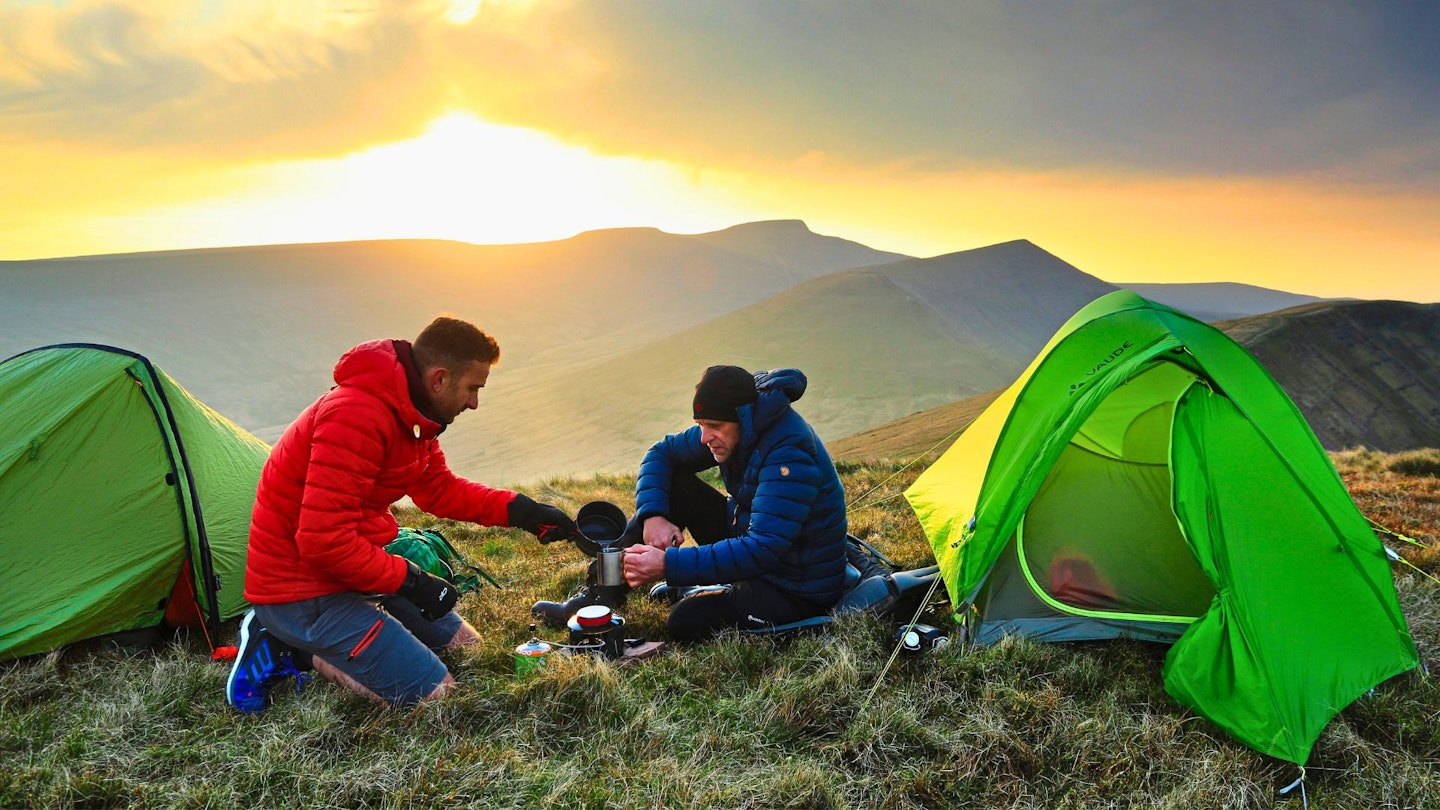
Essential vs non-essential camping gadgets
Because there are around 6,326,849 different types of camping gadgets to pick from, we're going to put them into two broad camps: essential and non-essential.
Essential camping gadgets tend to concern food, hygiene, and shelter. This obviously includes items like a stove but also extends to items like tent pegs and cutlery. Don't forget a sleeping mat either. These are all items we consider to be extremely important to basic comfort and welfare when camping.
To us, non-essential camping gadgets include purely luxurious items, which can include camping chairs and portable showers, for example. You have to use your common sense a bit here because perhaps someone with stiff joints might see a camping chair as a necessity. It's quite subjective.
What you shouldn't bring camping
Stores, especially online stores, are awash with useless and low-quality gimmicks, often labelled amazing or revolutionary. These include beanies with built-in headlamps and cheap multitools. Use your common sense to filter out the good from the bad and the useful from the gimmick.
The other key consideration is to try and avoid heavy or bulky items. What might be a campsite nicety could be an annoyance to carry with you. Is that luxury worth the extra bulk in your pack?
Choosing the right camping gadgets for you
Let's come back to that term 'subjective' again. Things like your budget and how you like to camp will influence what you take. Once you have the basics covered and avoid the gimmicks, it's up to you to decide what you want to take.
About the author
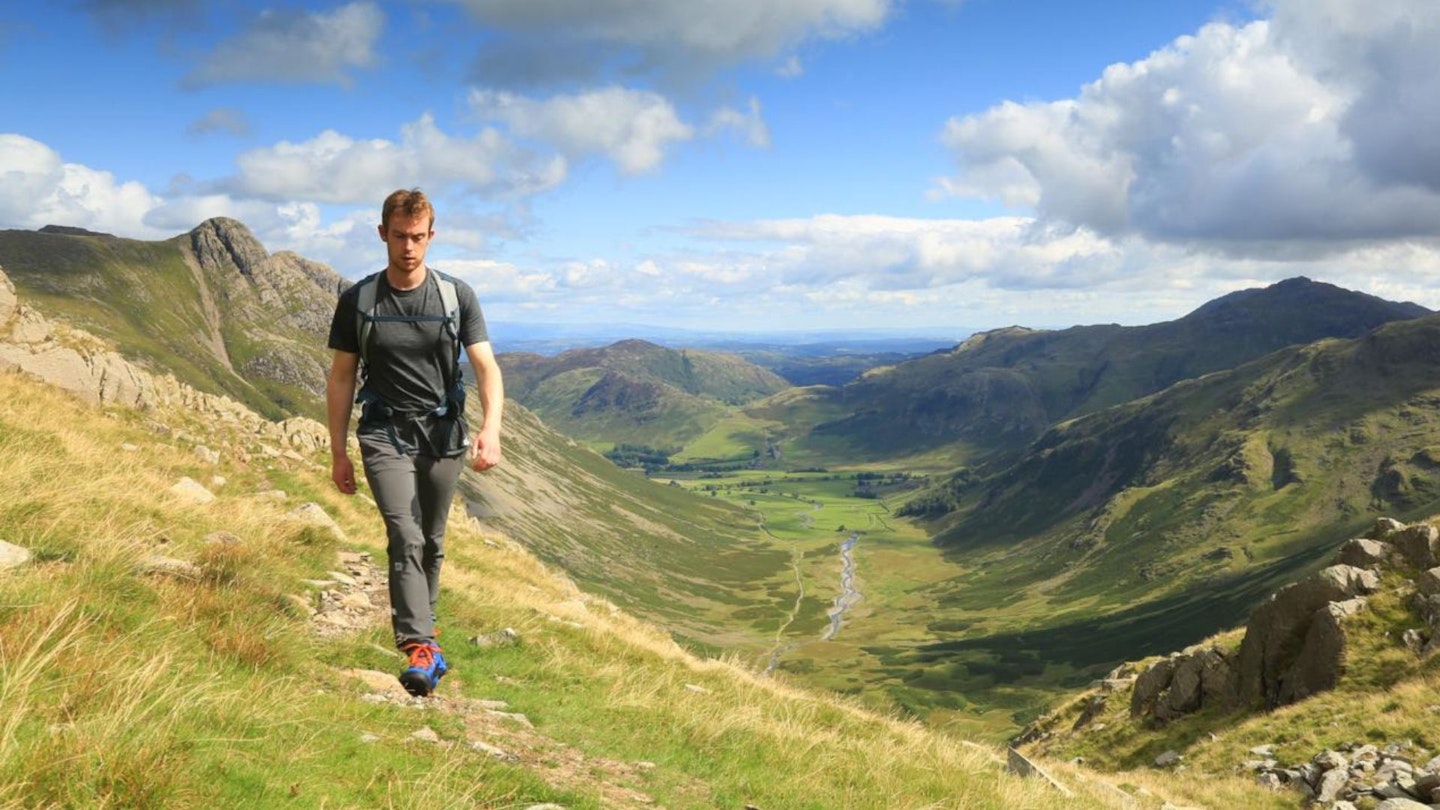
Chris Williams is our Senior Writer. He trained as a journalist in New Zealand and has been working for LFTO since 2021. Chris spent his childhood doing almost every outdoor sport under the sun. Eventually, those he pursued into his adult years were hiking, trail running, mountain biking and water skiing.
He began writing professionally after university, training at New Zealand’s Otago Daily Times newspaper. Curiously, it was for the motoring section. However, Chris also worked for New Zealand’s leading outdoor gear brand, and after spending a couple of years doing automotive writing, he changed to outdoor and thus joined Live For The Outdoors.
Though a writer, Chris likes to spend as little time behind a desk as possible, testing the latest outdoor gear and finding the best options for his fellow hikers and trail runners.

